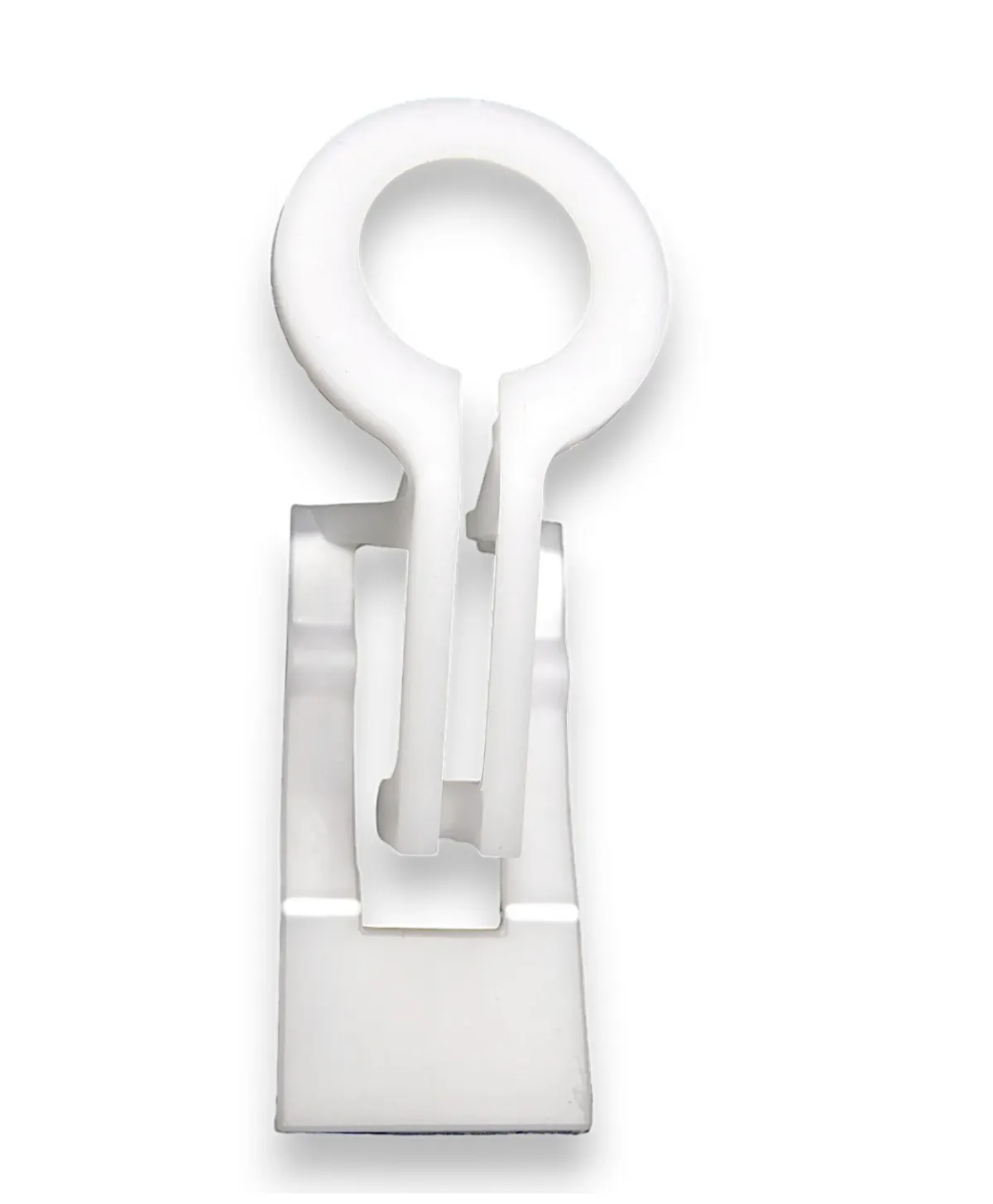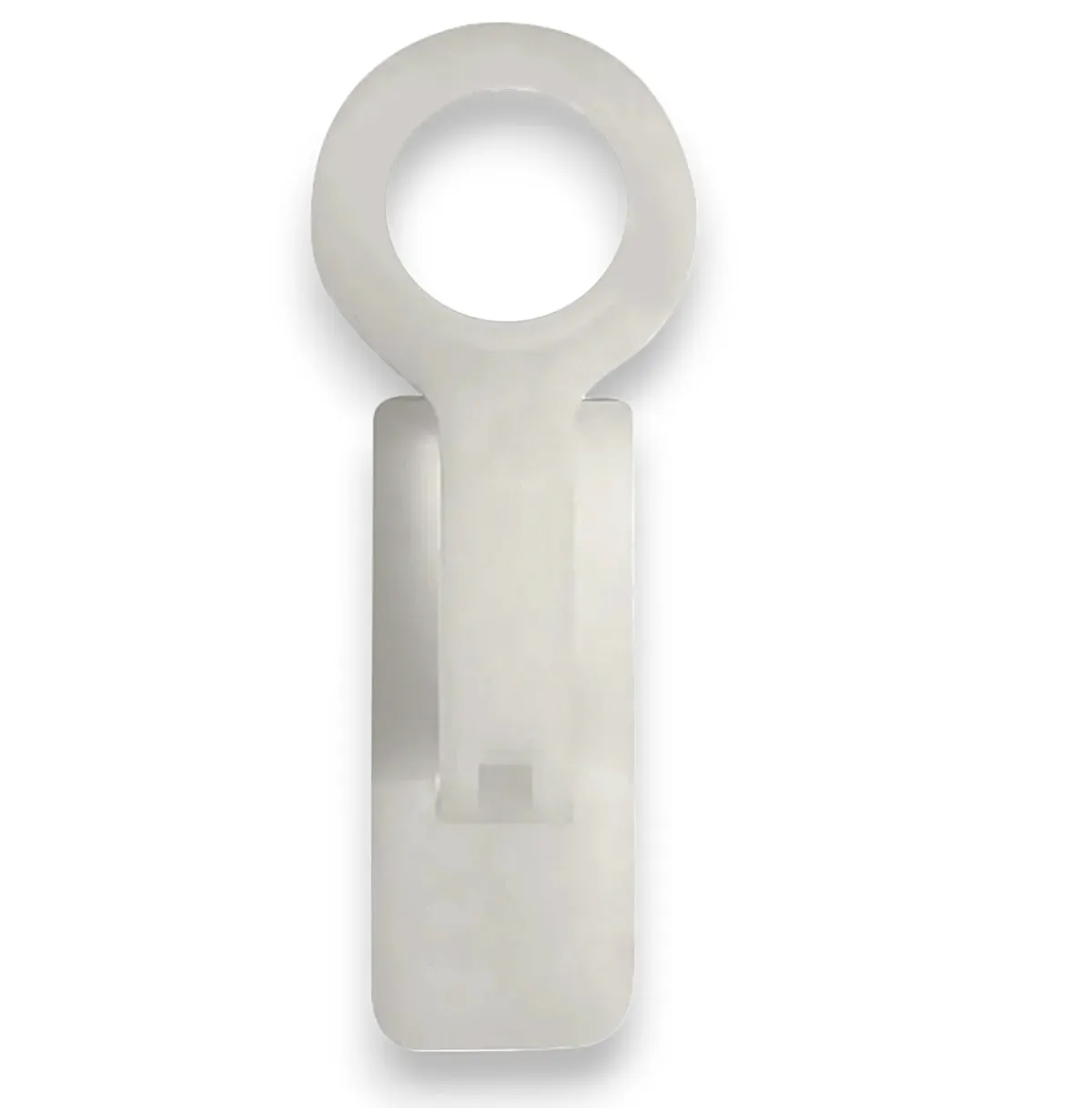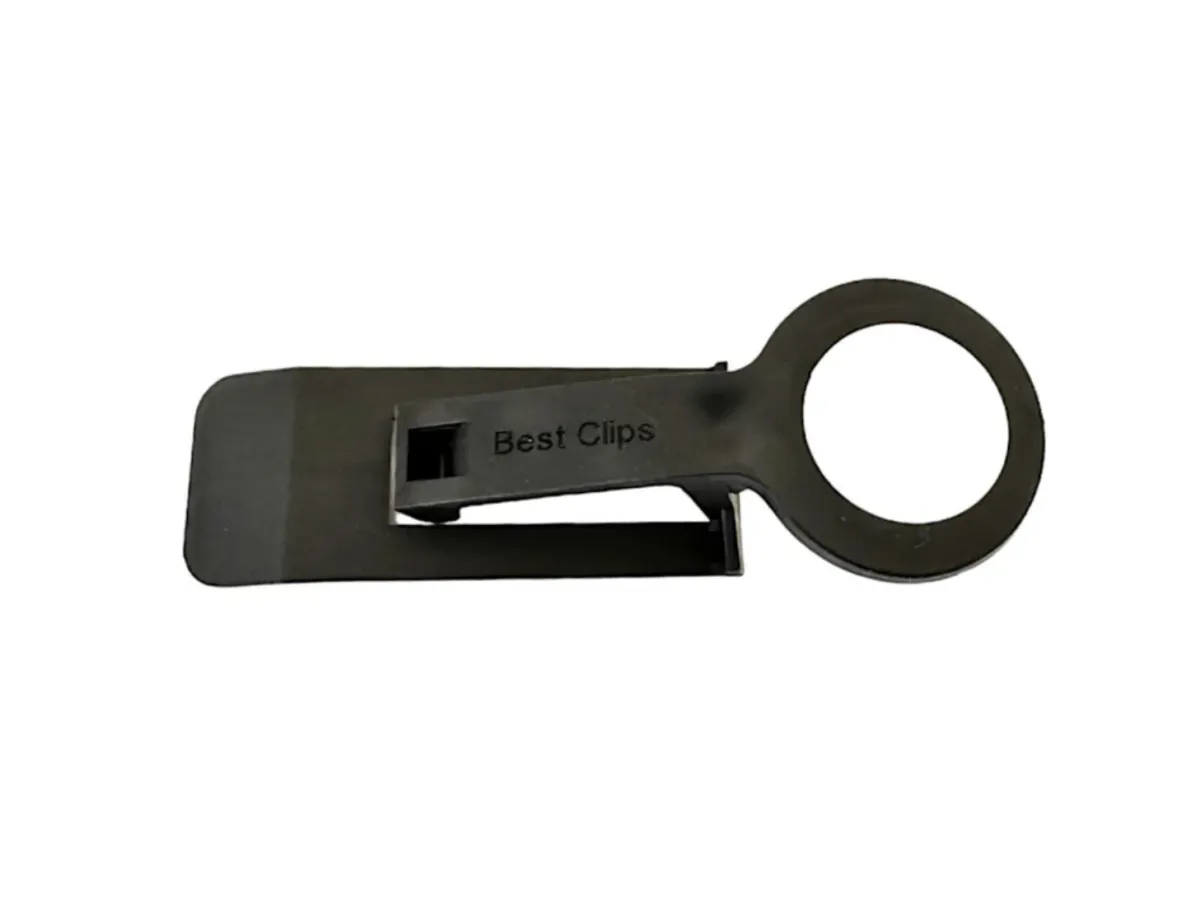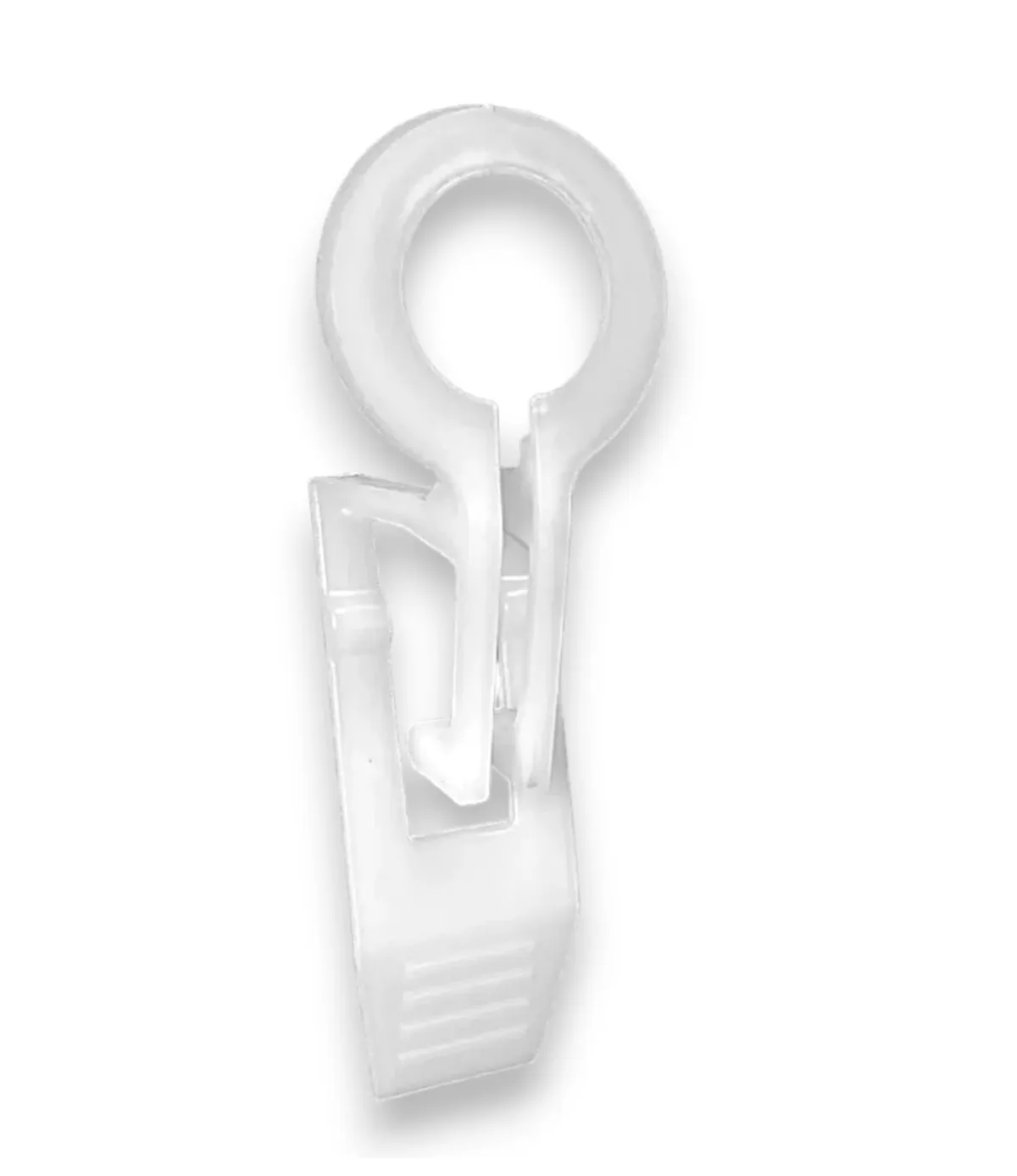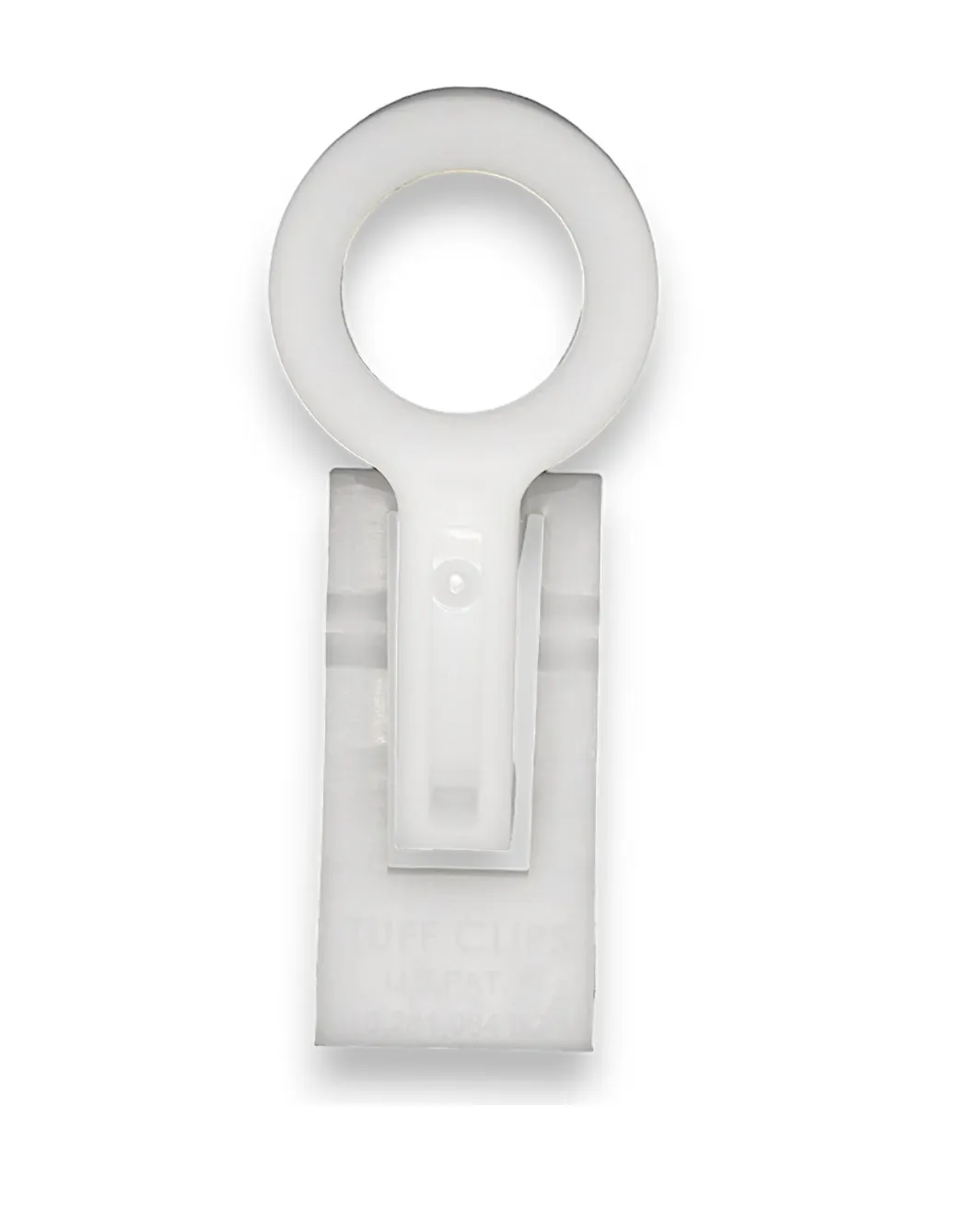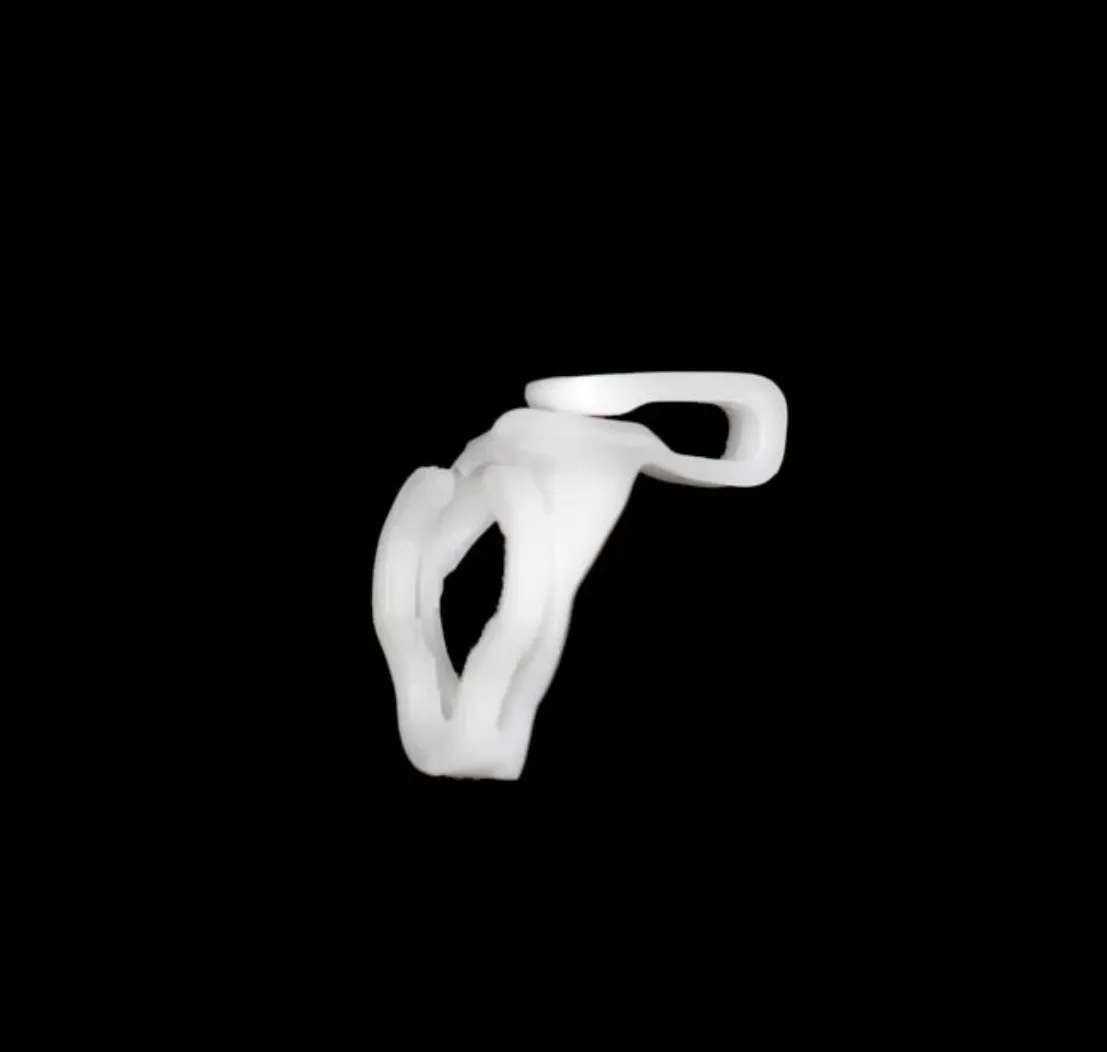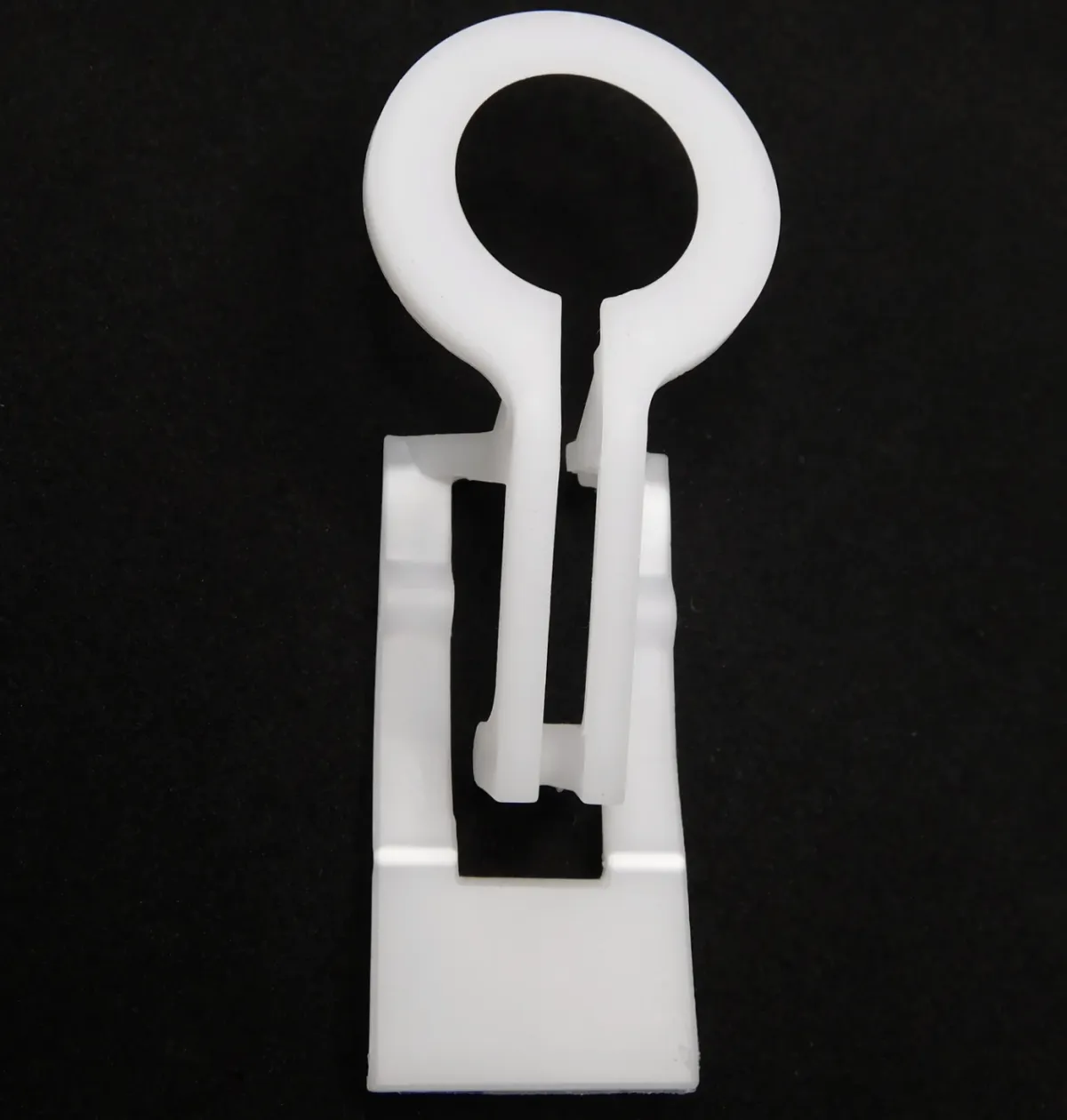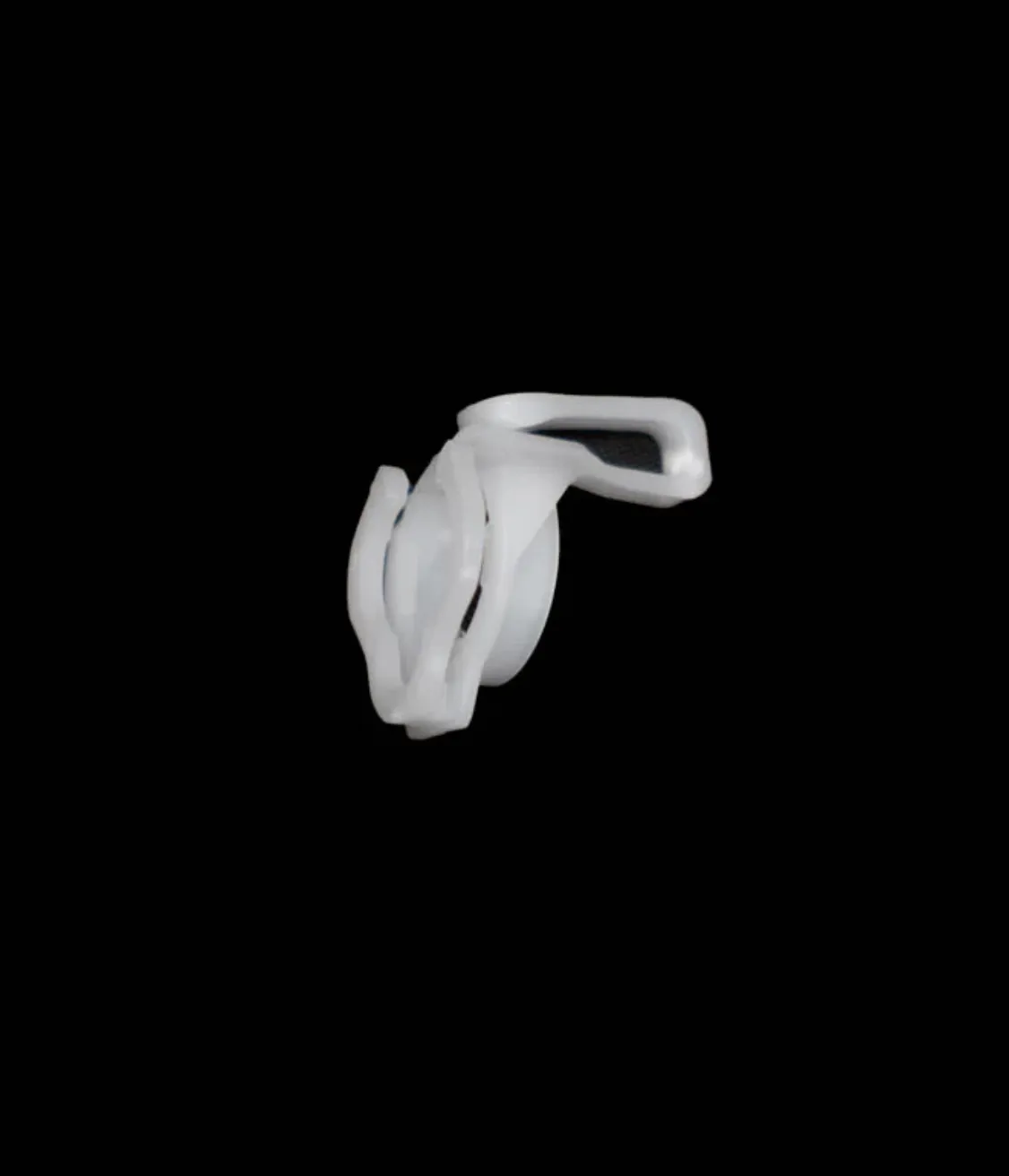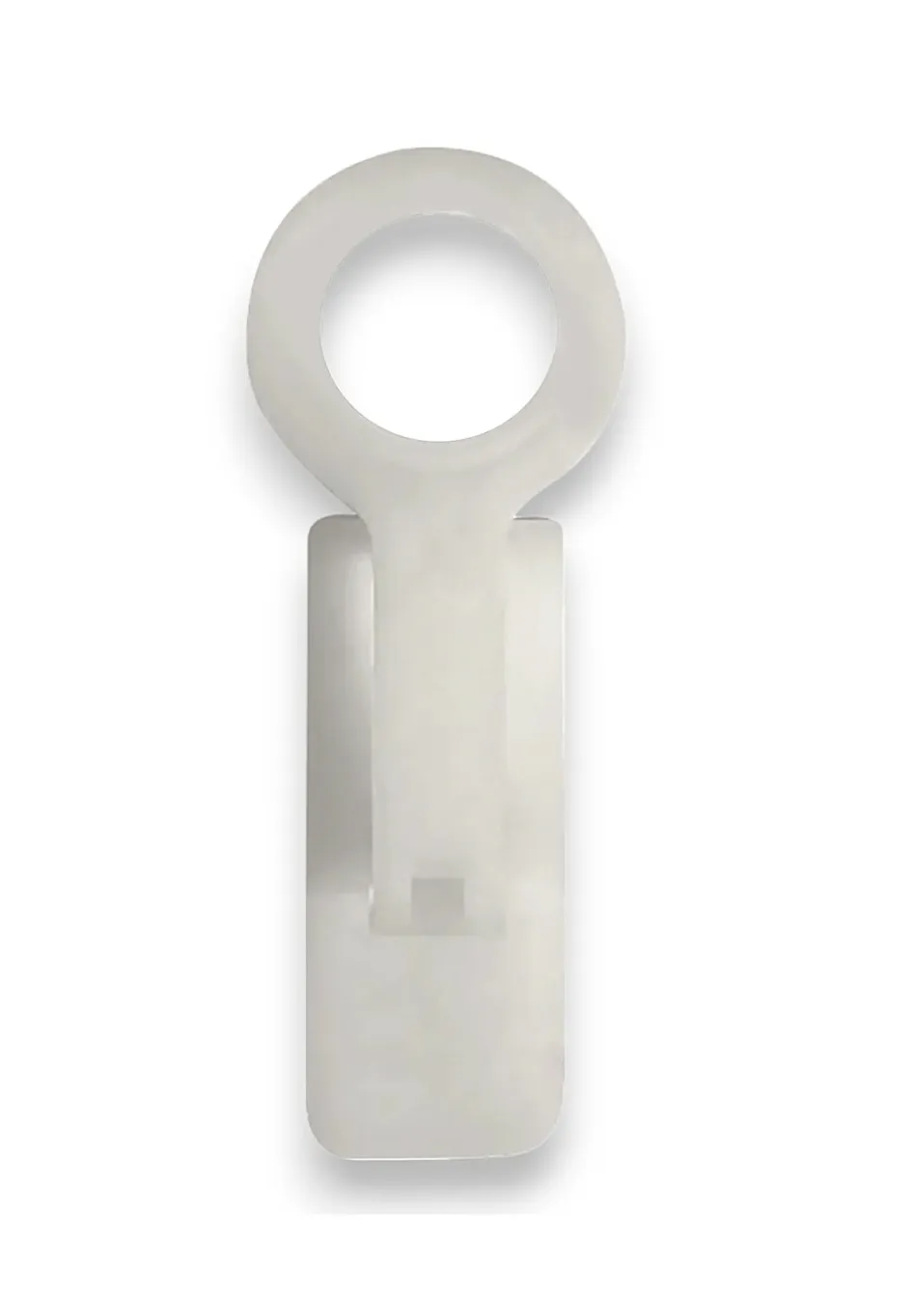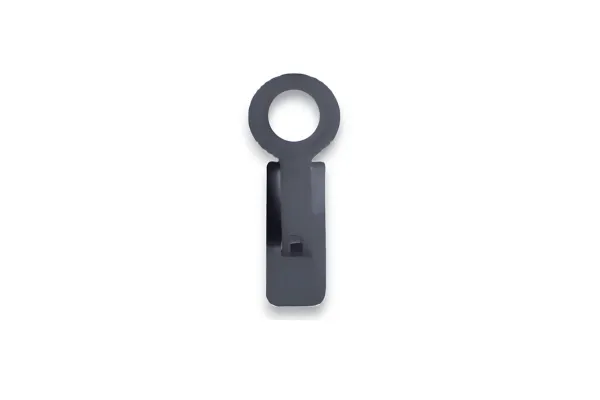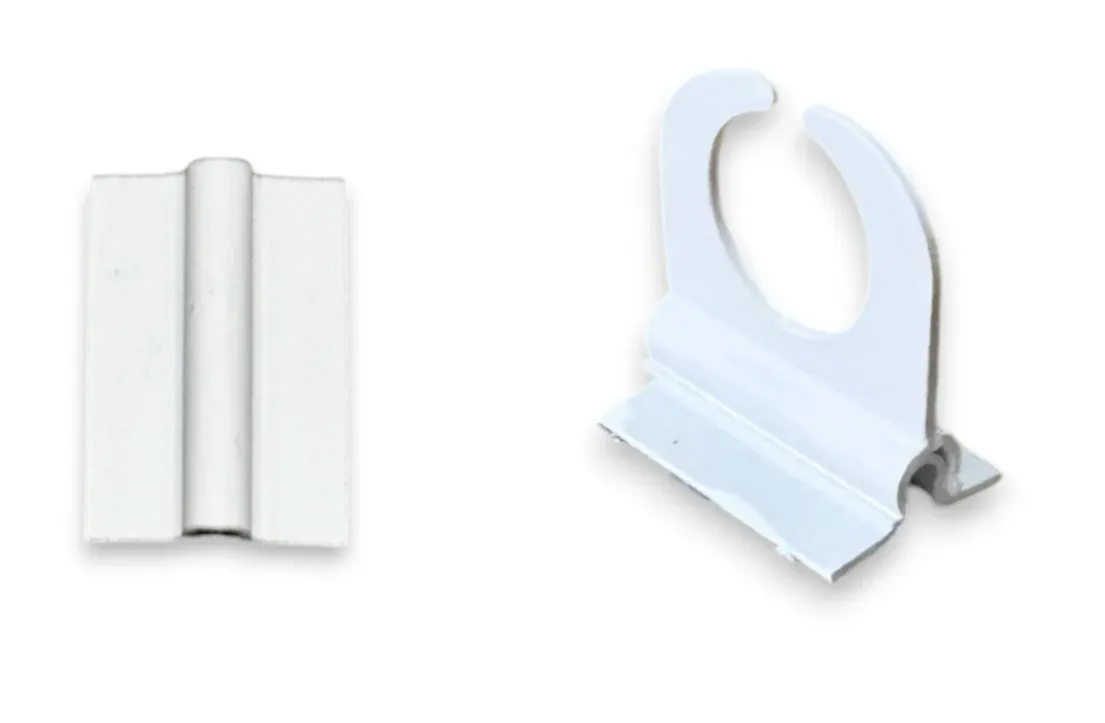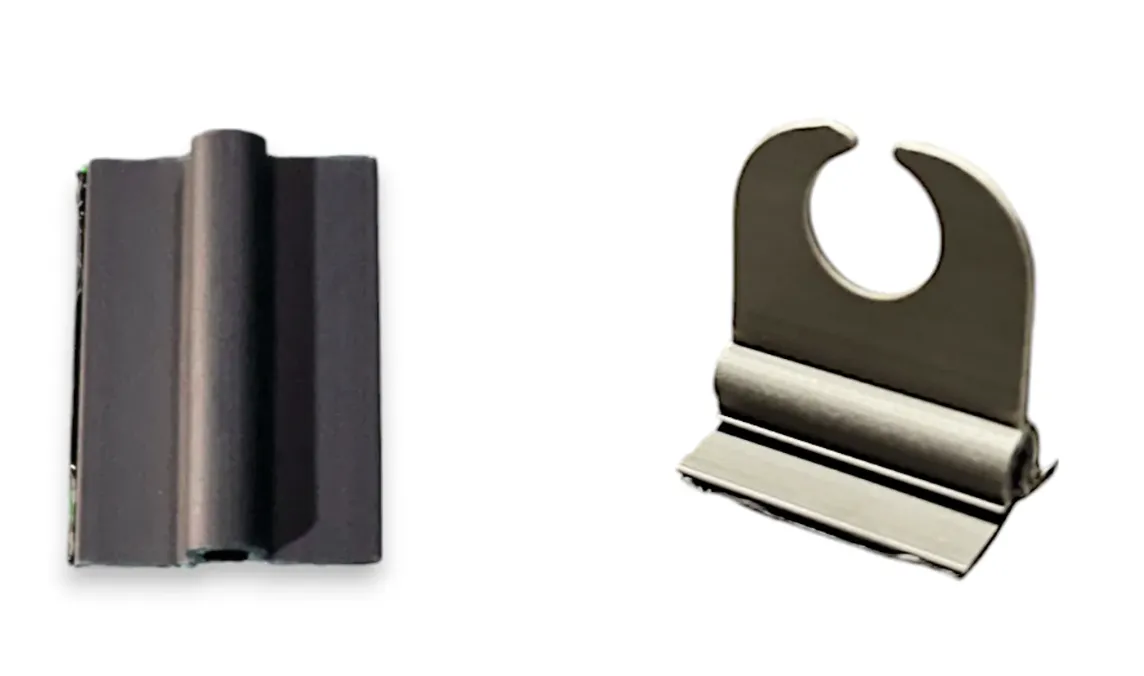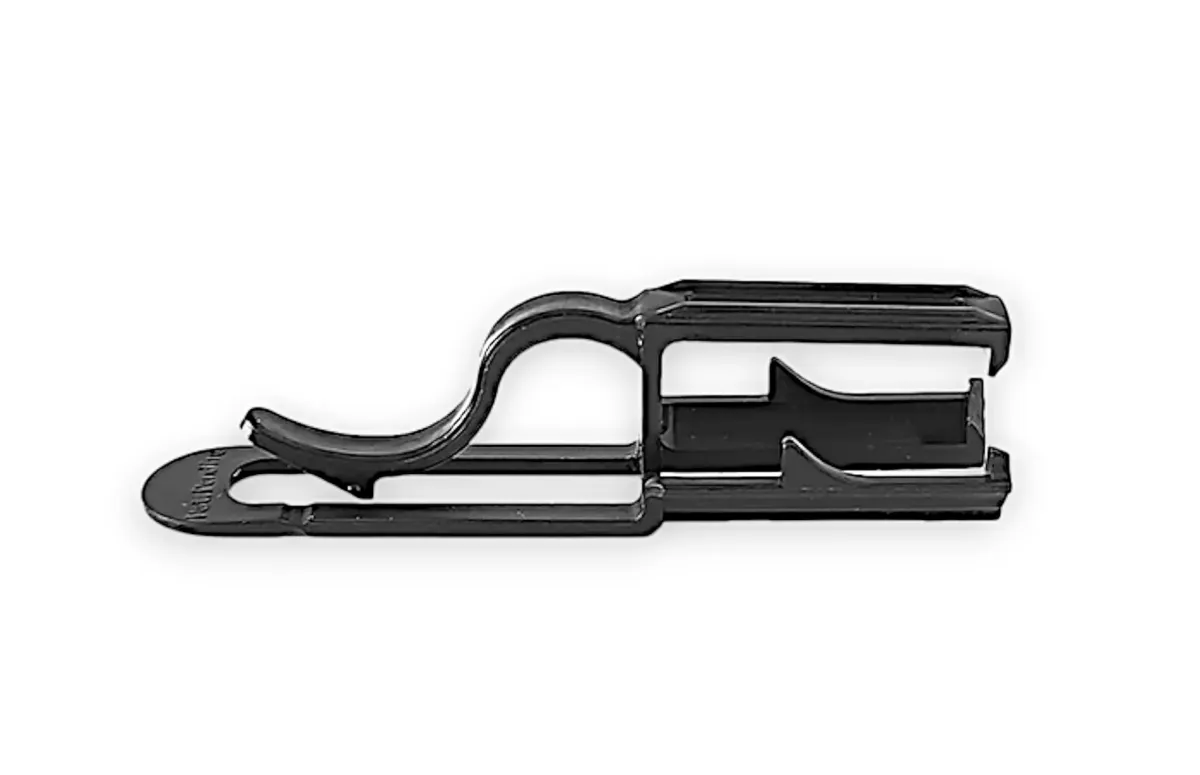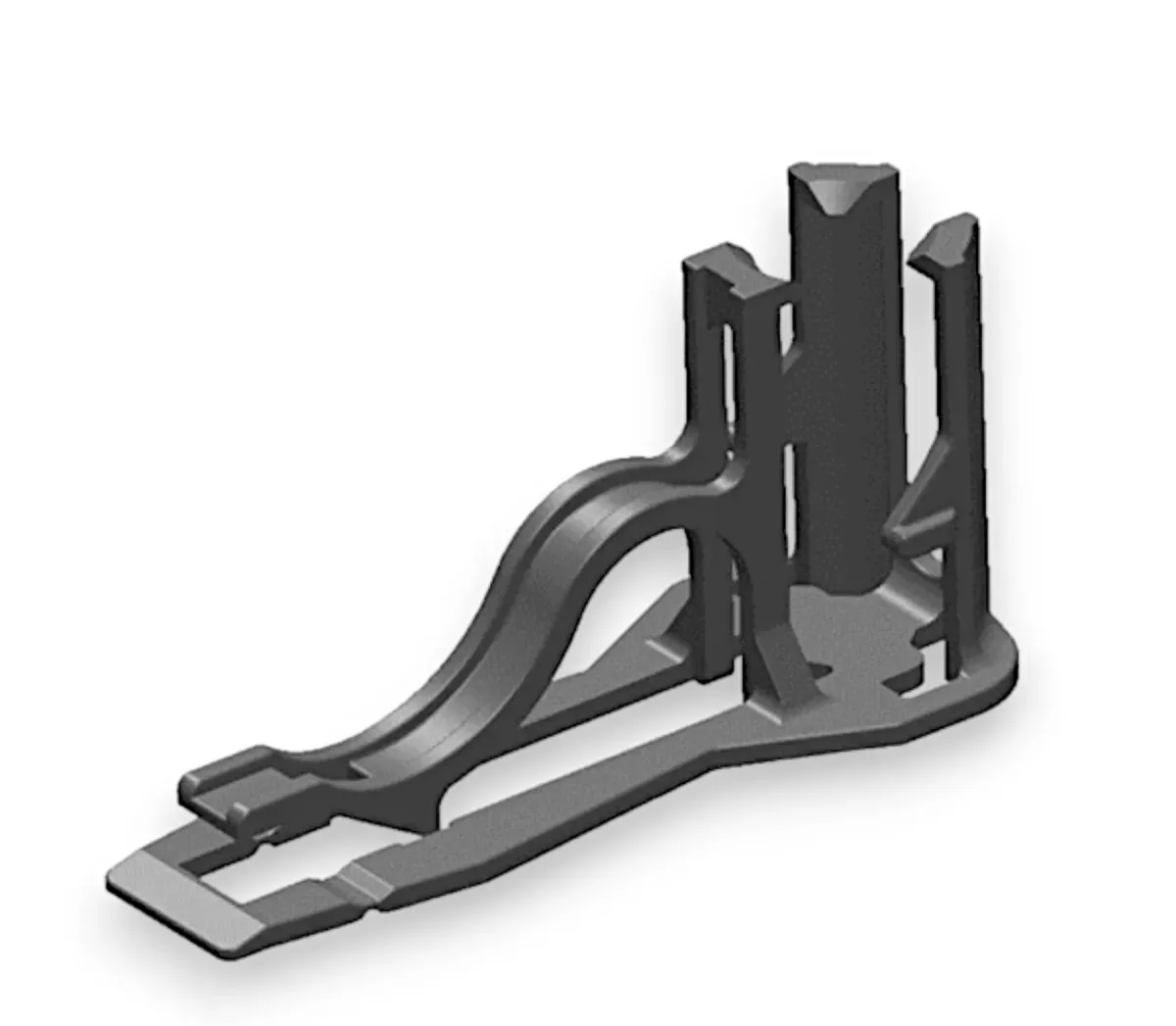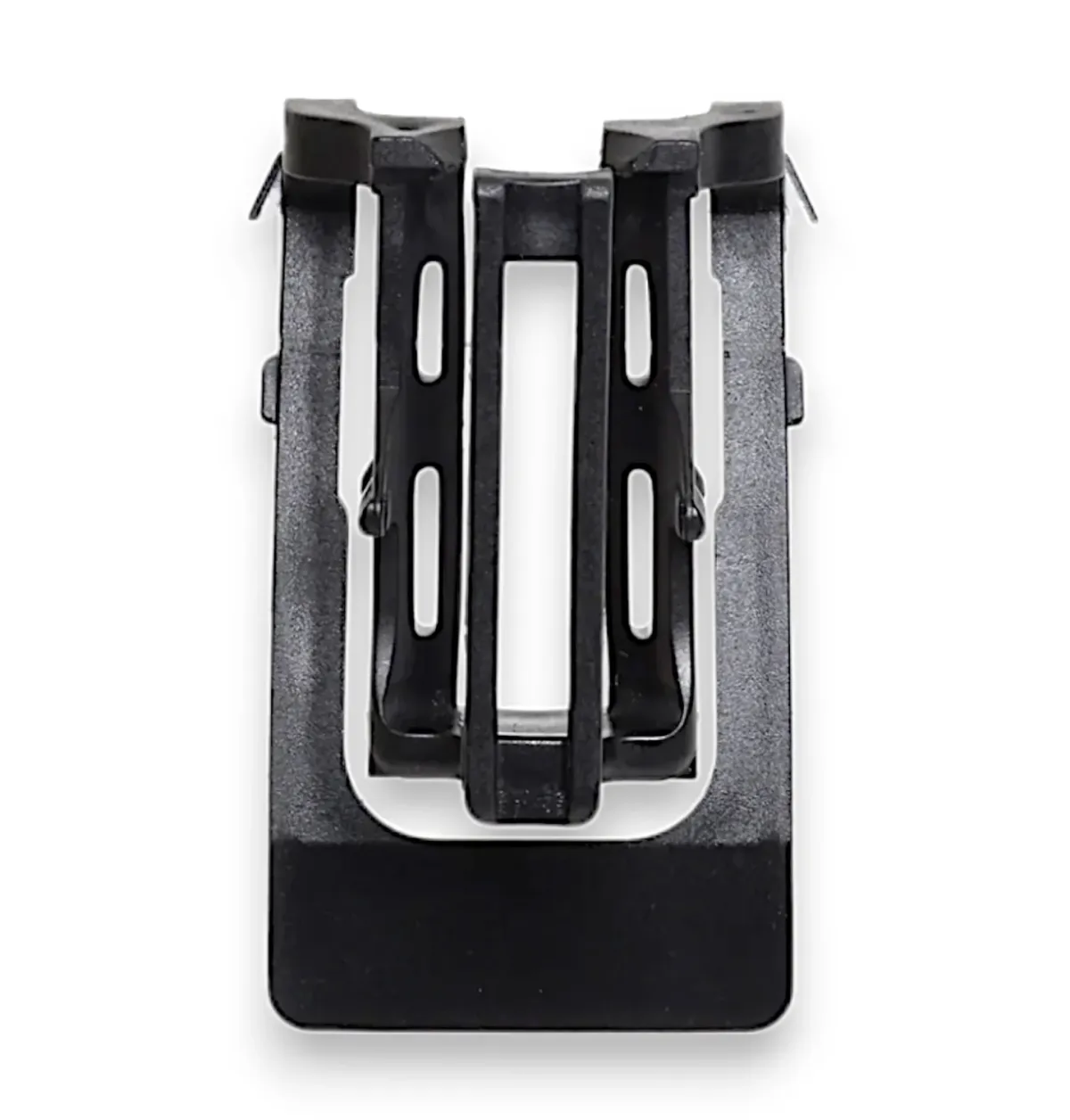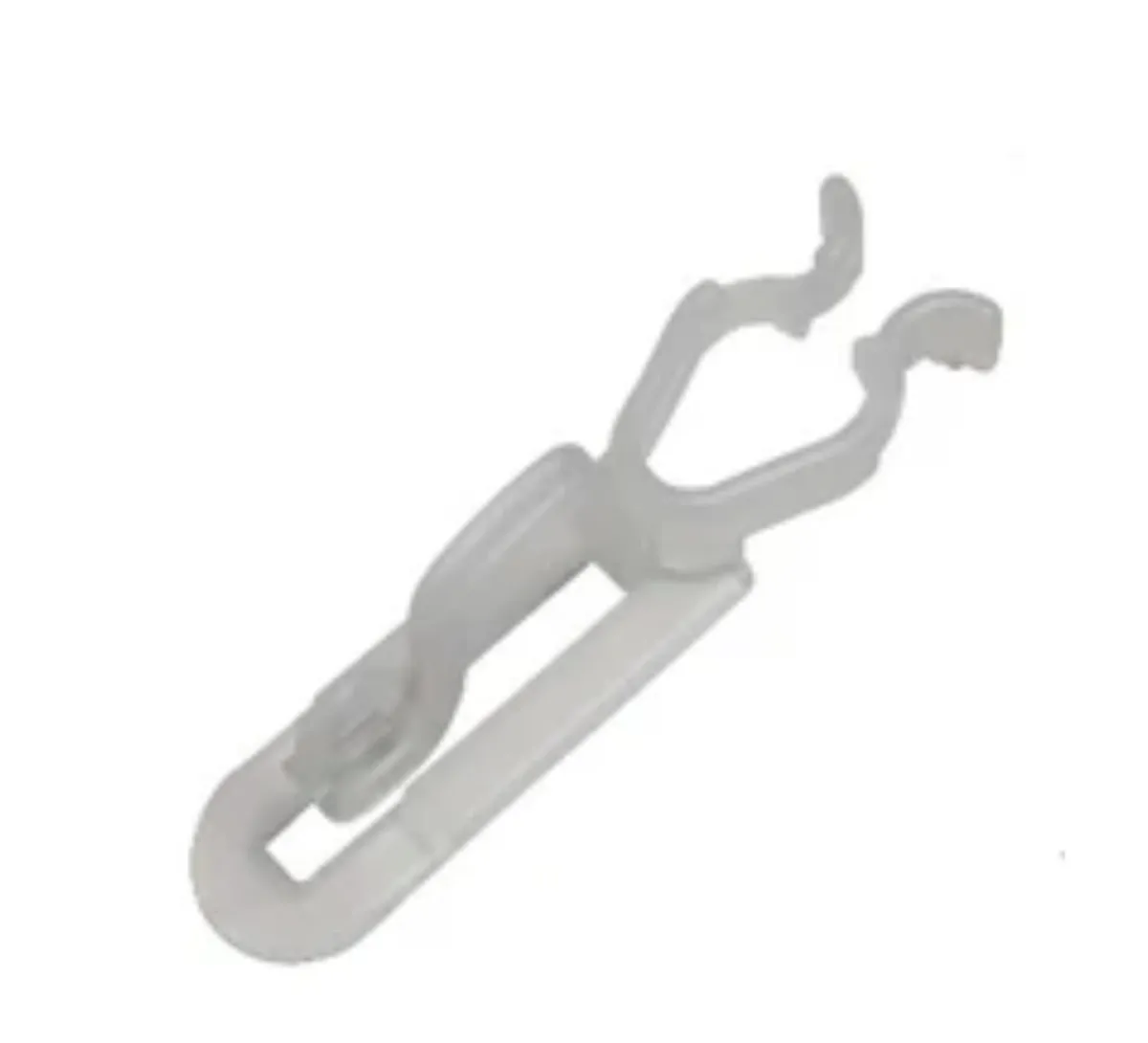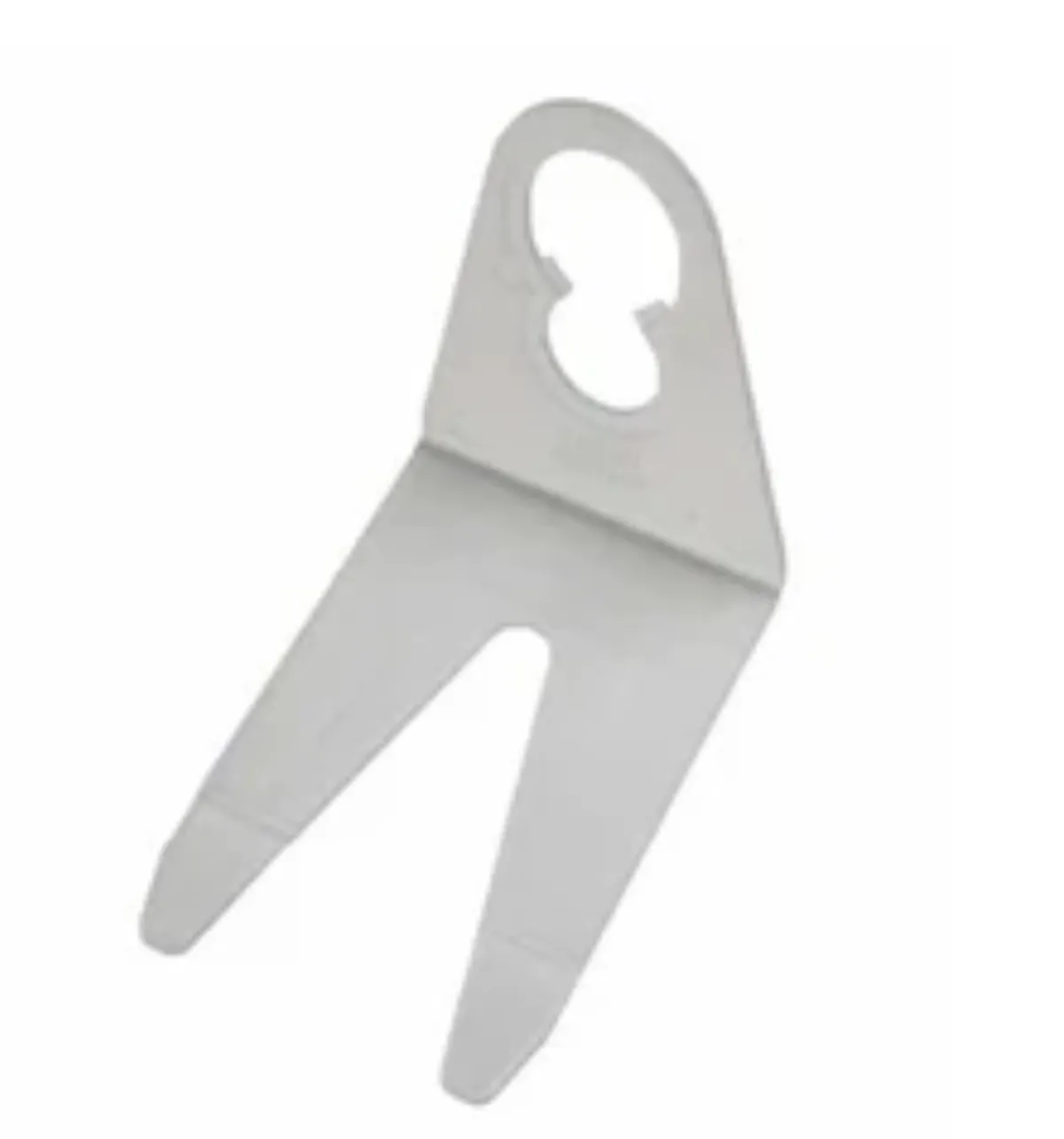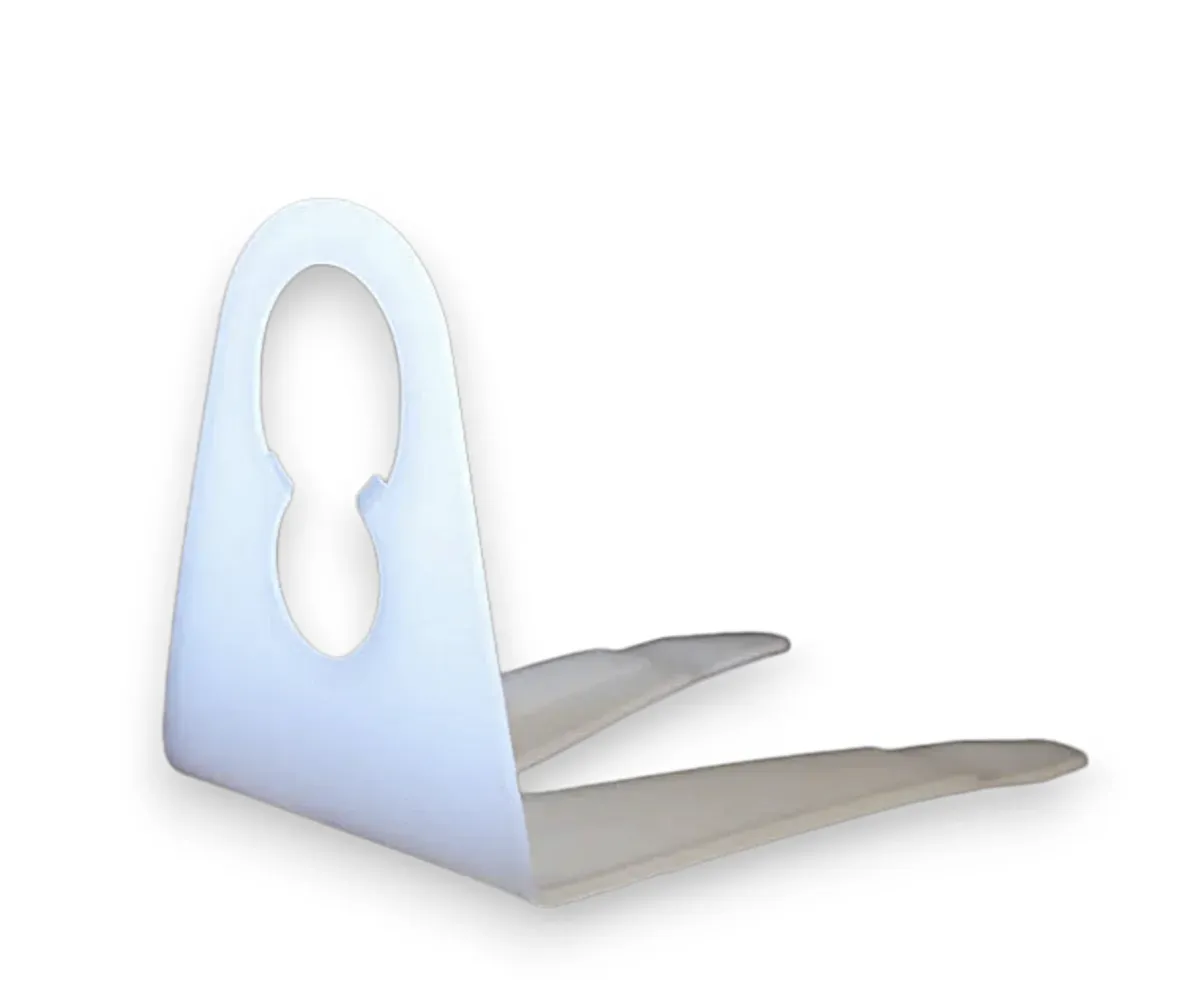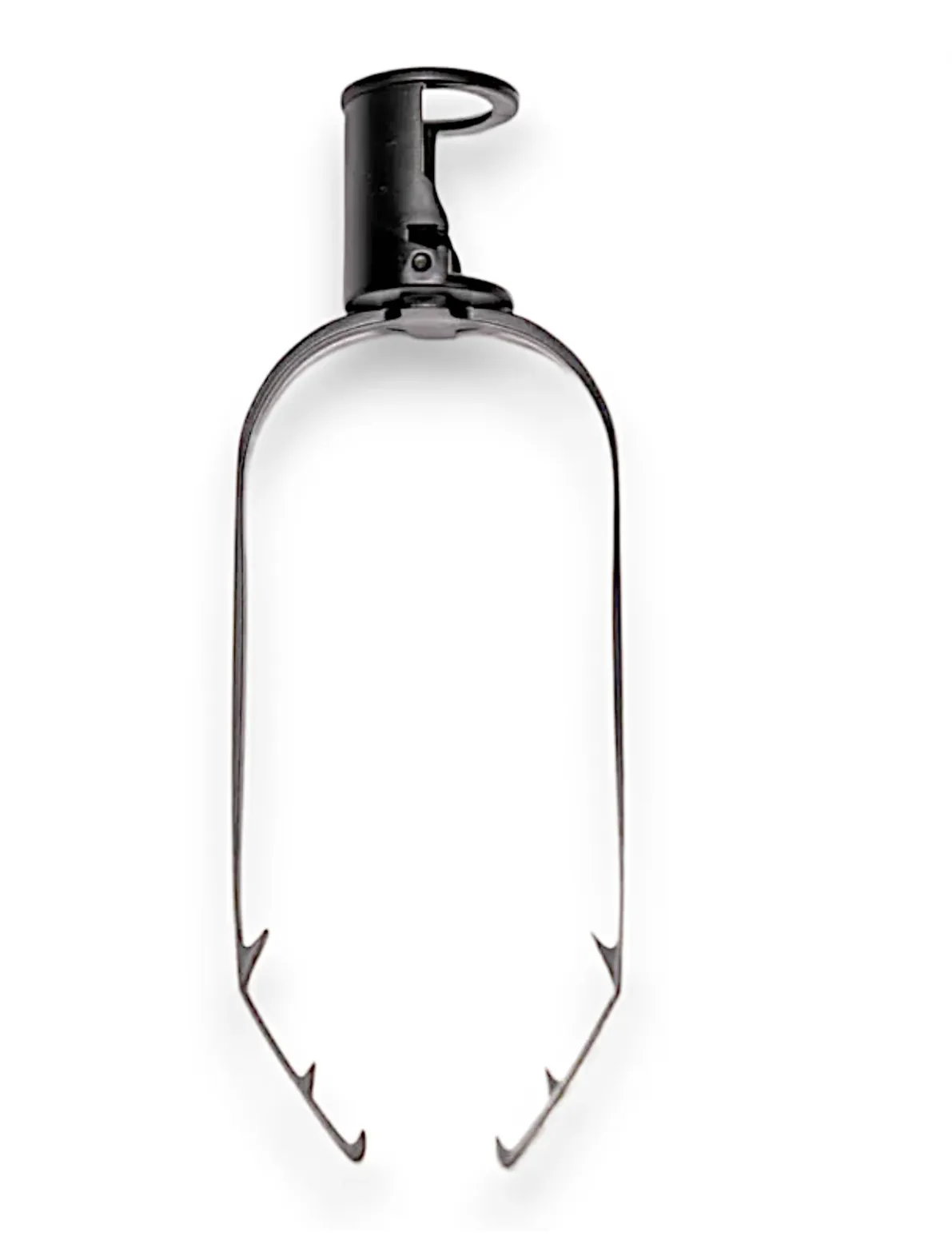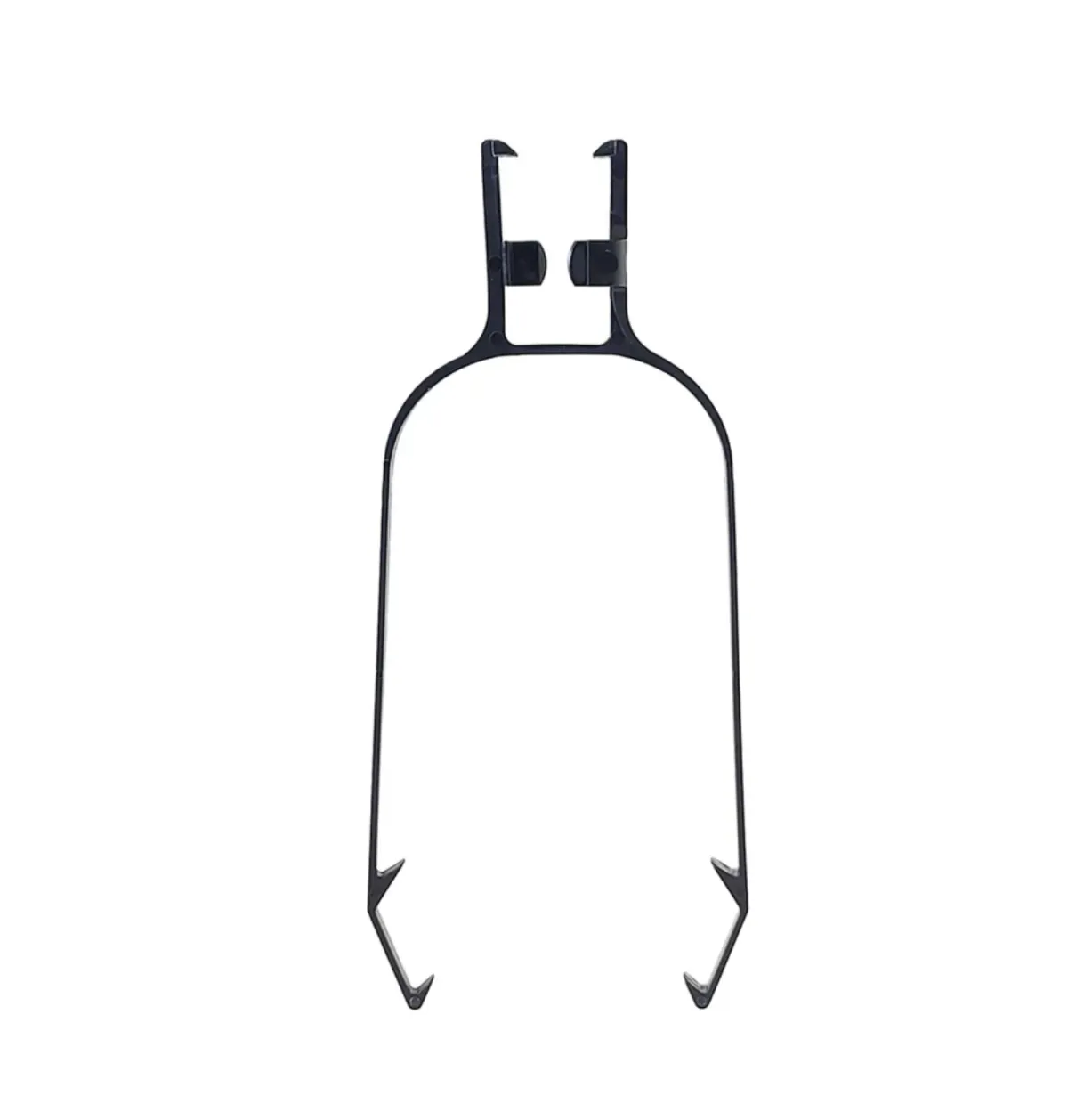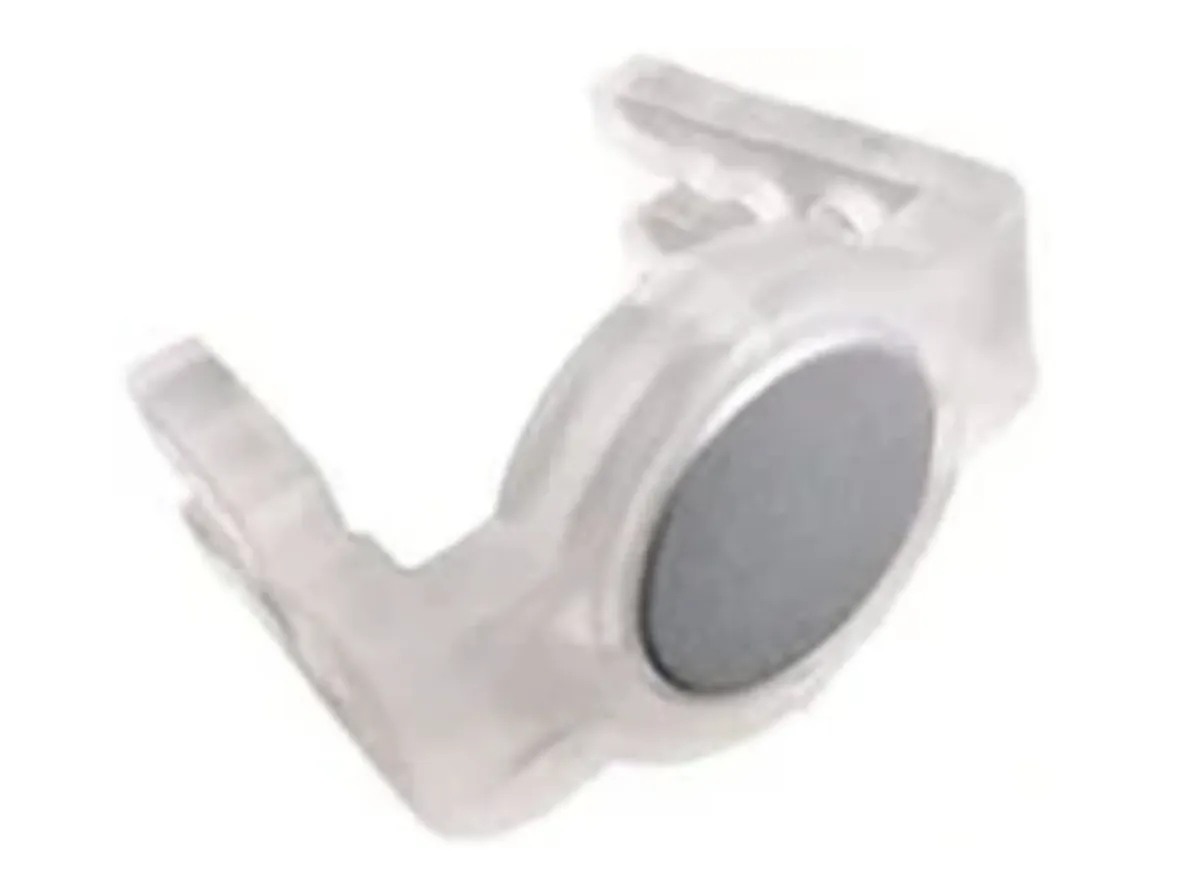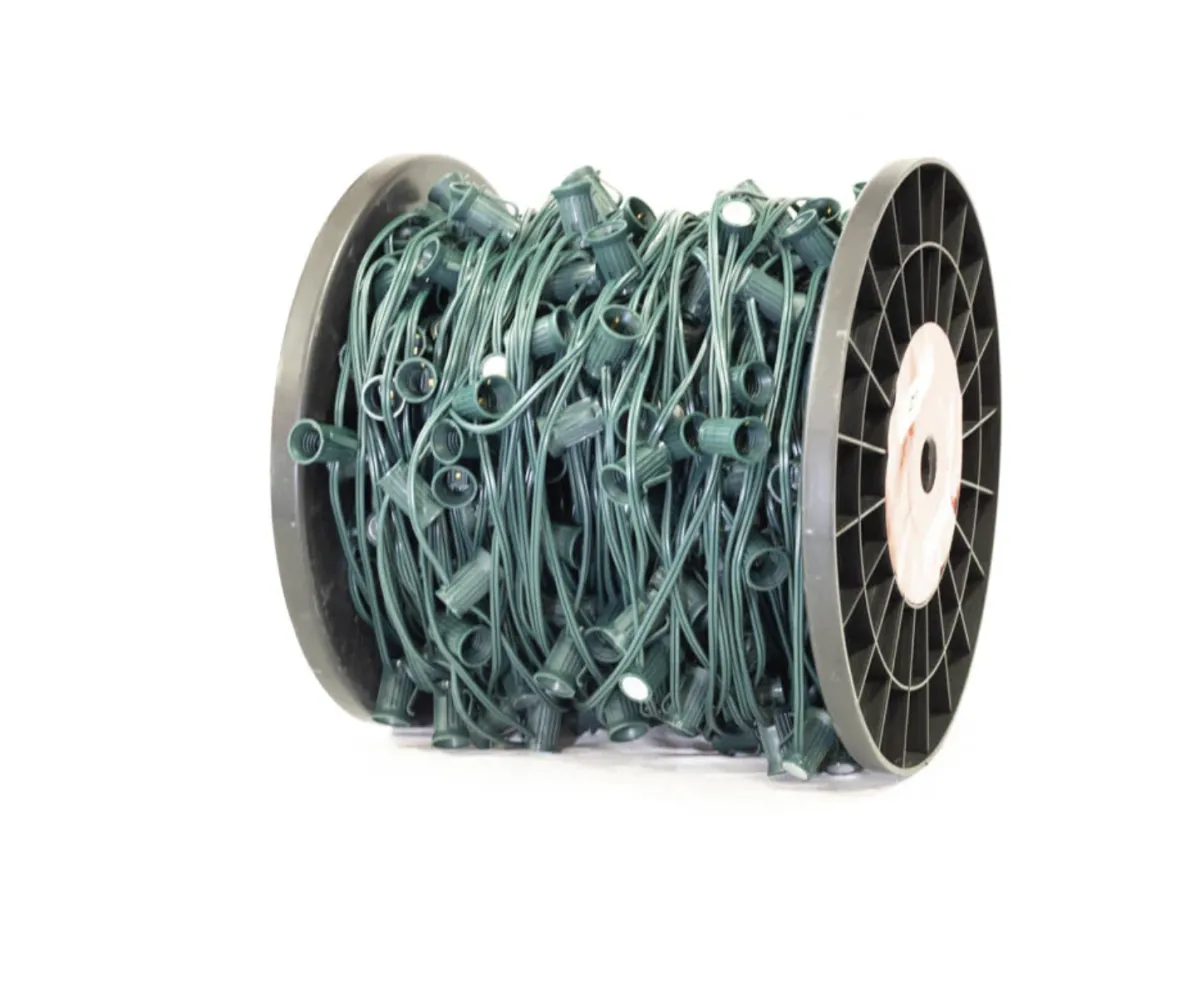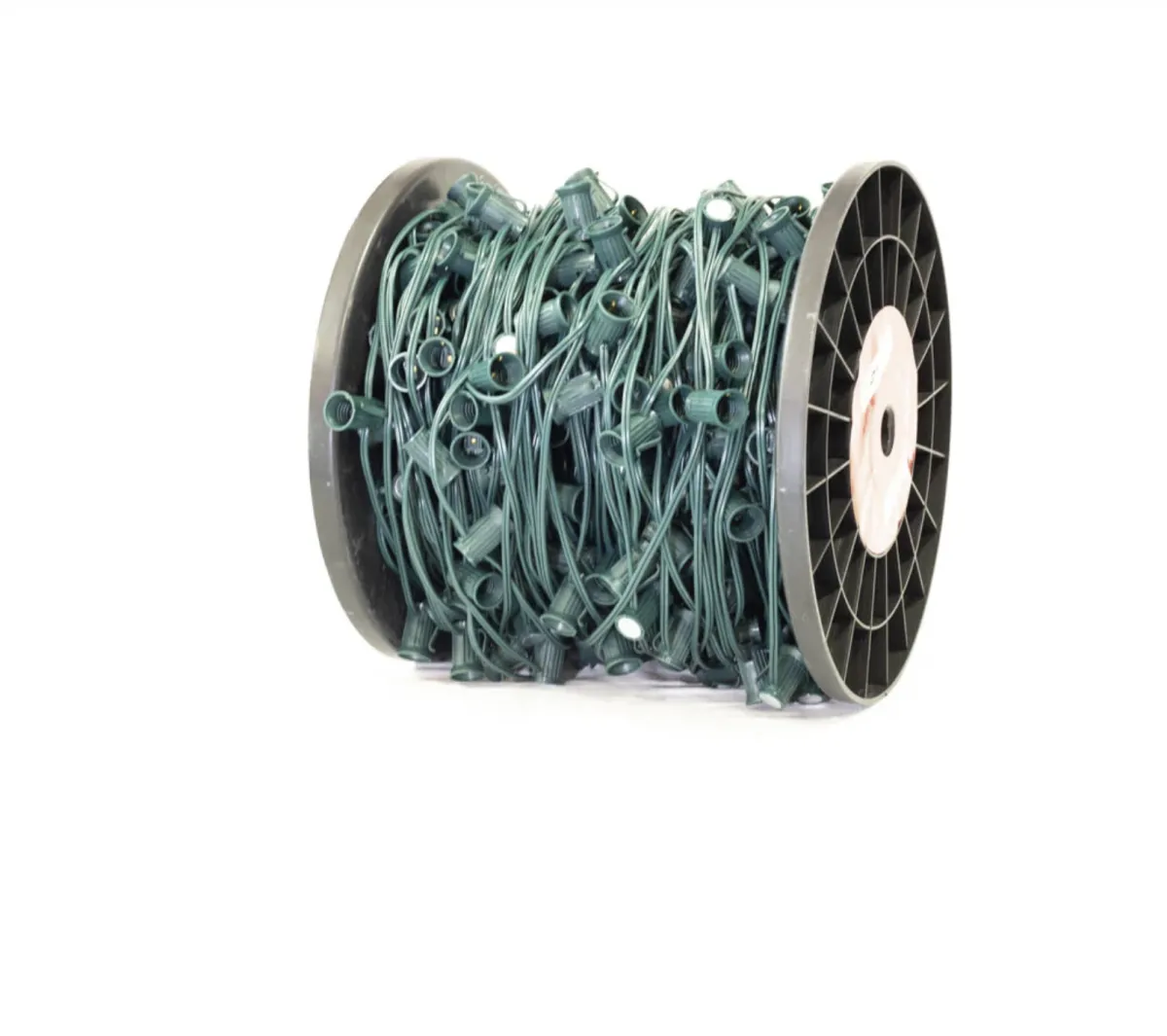Secure your Christmas lights effortlessly with our selection of professional grade clips
Secure Your Shine: Professional-Grade Christmas Light Clips for Every Surface
Click on any category below to jump directly to that section
Sturdy clips designed specifically for larger C9 bulbs. Perfect for rooflines and creating bold, visible displays.
Versatile clips tailored for medium-sized C7 bulbs. Ideal for various applications, from windows to outdoor structures.
Christmas Light Clips: Innovative clips with strong magnets for easy, damage-free installation on metal surfaces like gutters and downspouts.
Specialized clips for secure attachment along roof ridges and peaks, ensuring a perfectly straight light line on difficult angles.
Convenient pre-spaced clip strips for quick and uniform installation of light strings, saving time and effort.
Unique clips designed for specific surfaces or applications, such as brick, stucco, or wrapping lights around columns.
C9 Christmas Light Clips
C7 Christmas Light Clips
Christmas LiteClip & Strips
Streamline your holiday light installation with our commercial-grade LiteClips. Available for both C9 and C7 bulbs, these versatile clips easily secure between the socket and bulb, allowing for downward, upward, or straight-out positioning. For a complete, safe, and secure setup, pair with our LiteClipStrip mounting system. These efficient tools ensure quick and professional-looking installations for homes and businesses alike. Available in White or Brown.
Speciality Christmas Lights Clips
All-Purpose
Clip
The All-in-One Plus clip, favored by professional installers, accommodates C7, C9, C6, mini, and icicle lights, offering versatile horizontal gutter and vertical shingle mounting options, a tight grip for mini lights, layering capabilities for unique designs, and the ability to hang two light strings simultaneously, ensuring a perfect roof display.
Best Shingle
Tab Clip
This durable plastic shingle tab, more robust than standard versions, securely holds both C7 and C9 sockets, easily slides under shingles, and versatilely attaches to gutters, decks, and flat surfaces (when paired with a parapet clip), making it the perfect Christmas light accessory for various installation needs.
Tuff Tab
Clip
The durable Tuff Tabs, designed for C7 or C9 bulbs, feature Flex technology for easy installation over socketed bulbs, 360-degree rotation, outward-facing positioning on shingles or cedar shakes, two living hinges for secure hold, and weather-resistant construction for professional-grade Christmas light displays.
Christmas Light Ridge Clips
C9/C7 Best Enclosed
Ridge Clip
The C9/C7 Best Enclosed Ridge Clip (Patent Pending) is a durable, year-round solution for C7 and C9 socket strands and bulbs, featuring a fully enclosed design that securely holds lights in place without detachment, making it ideal for permanent or long-term installations.
Magnetic Christmas Lights Clips
Magnet Clip for C7/C9
Socket Wire
The Magnetic Clip for C7 or C9 Sockets, designed exclusively for SPT-1 wire (not compatible with LED stringer sets), features a high-strength solid magnet that securely holds lights horizontally or vertically on metal surfaces (excluding aluminum), allowing for quick, reusable installations year after year.
C9 Magnetic Spool
12" Spacing
This versatile lighting solution features heavy-duty, UV-protected 18-gauge SPT-1 wire rated for 840 watts, equipped with rust-resistant nickel-plated C9 magnetic sockets for secure attachment to ferrous metals, 12" spacing, 250' or 500' foot spool, compatible with E17 base incandescent and LED bulbs (sold separately), and suitable for both indoor and outdoor use.
C9 Magnetic Spool
15" Spacing
This versatile lighting solution features heavy-duty, UV-protected 18-gauge SPT-1 wire rated for 840 watts, equipped with rust-resistant nickel-plated C9 magnetic sockets spaced 15" apart on 250' or 500' spools, securely attaching to ferrous metals and compatible with E17 base incandescent and LED bulbs (sold separately) for both indoor and outdoor use.
Why Christmas Light Clips Are a Game-Changer
Transform your holiday decorating experience with professional-grade Christmas light clips. These versatile tools are the secret to creating clean, polished displays that withstand the elements all season long. Designed for various surfaces and bulb sizes, quality clips ensure your lights stay securely in place, avoiding the sloppy appearance and frequent adjustments often associated with cheaper alternatives. Easy to install and remove, these clips are favored by professionals nationwide for their durability and neat finish. By investing in commercial-grade clips, you'll save valuable time during both setup and takedown, allowing you to focus more on enjoying the festive season rather than fussing with your decorations. Make your holiday lighting effortless and impressive with the right clips, and elevate your display to a professional standard with minimal hassle.
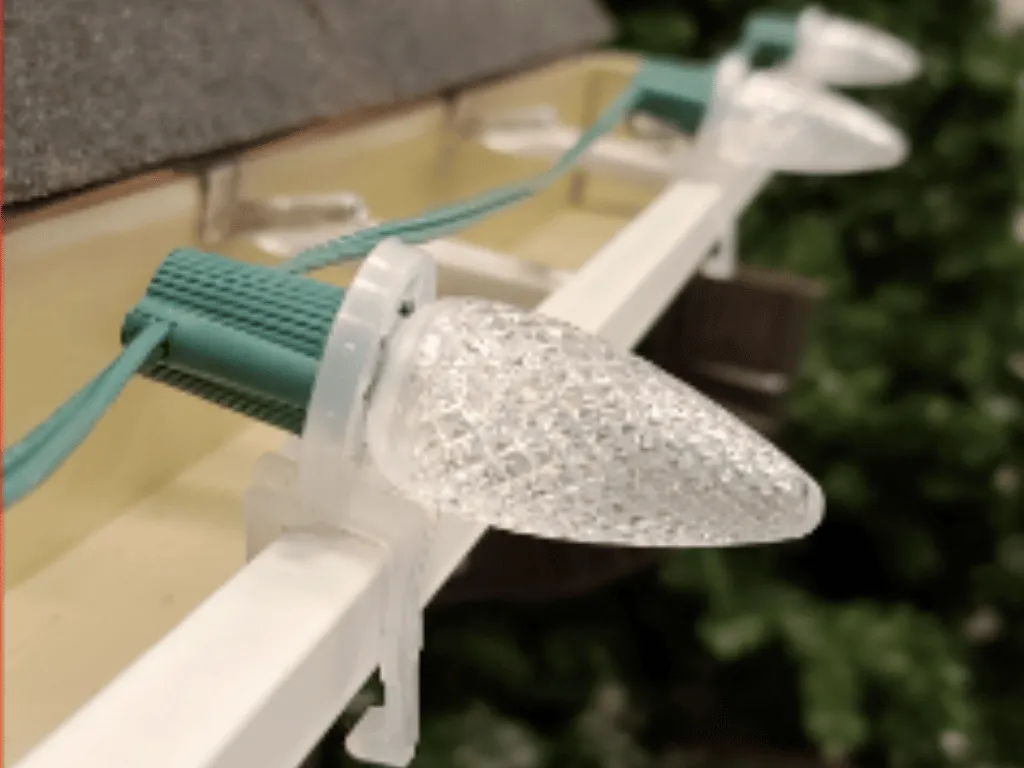
Christmas Light Clips
for Damage-Free, Professional Displays
Upgrade your holiday decorating technique by replacing staple guns and nails with versatile Christmas light clips. These innovative tools not only protect your home and lights from damage but also allow for easy adjustments after installation. Available in various designs to suit different surfaces like gutters, shingles, and flat areas, light clips can securely hold multiple bulb sizes, including C7, C9, icicle, and mini lights. By switching to clips, you'll preserve your property's integrity, extend the life of your lights, and gain the flexibility to perfect your holiday illumination with ease. Embrace this simple yet effective solution to elevate your decorating process and achieve professional-looking results without the hassle and potential harm of traditional fastening methods.
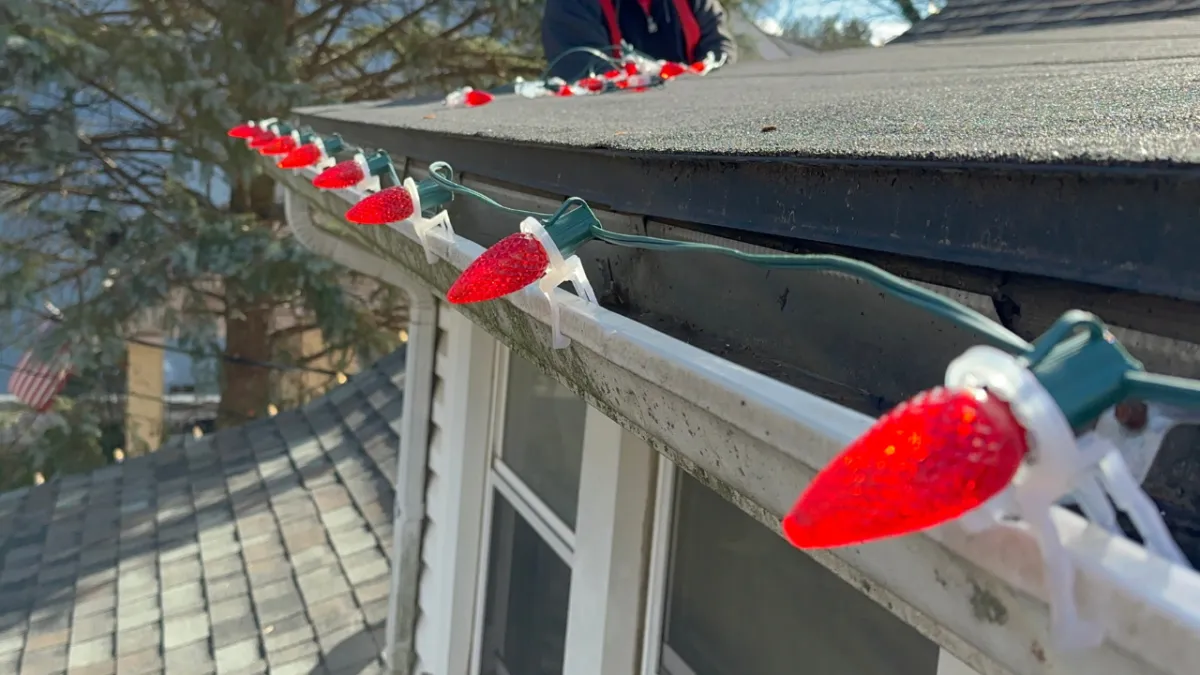
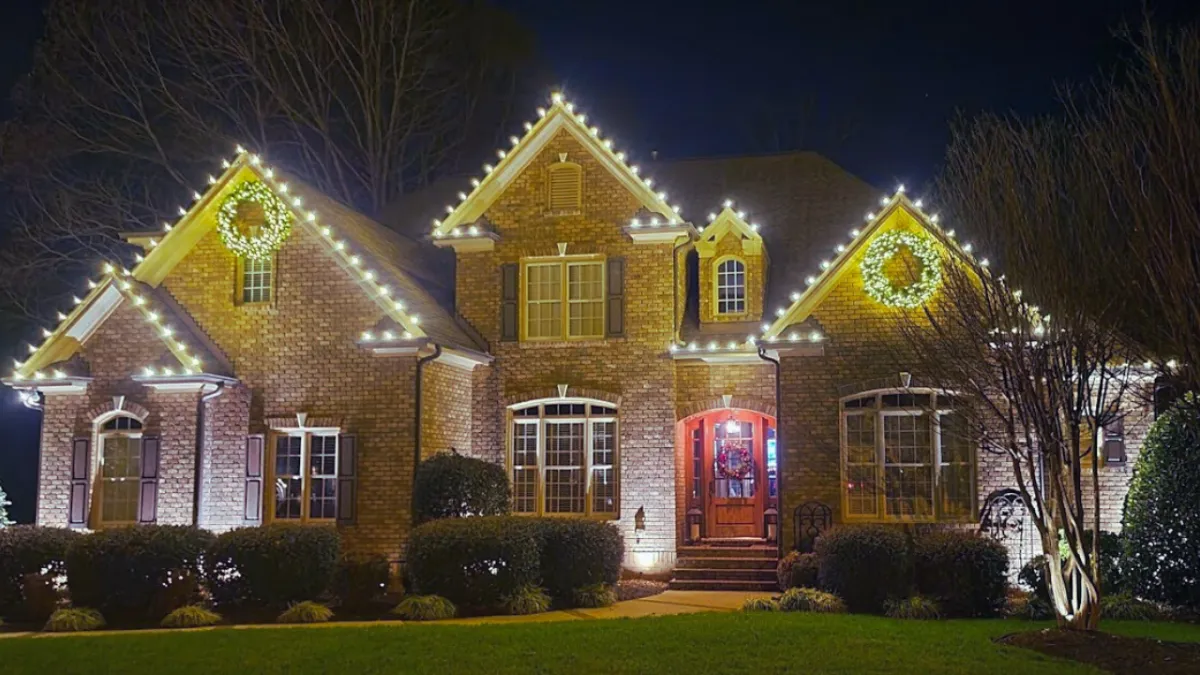
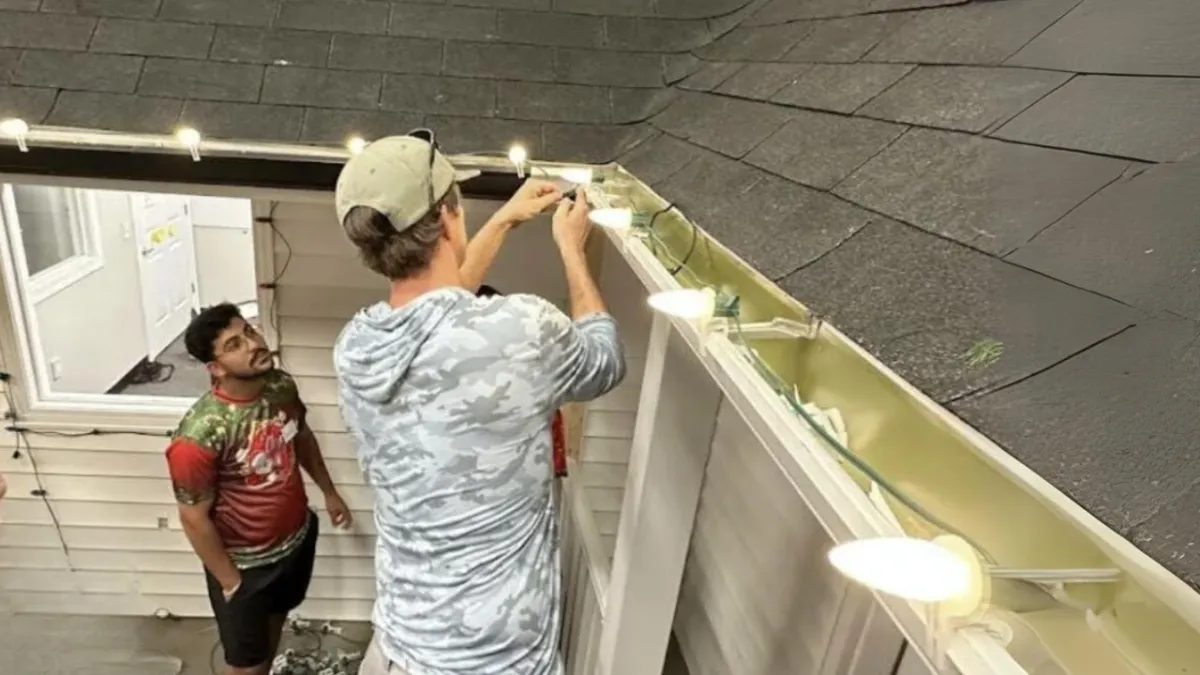
Frequently Asked Questions
How do Christmas light clips compare to traditional methods like staples or nails?
Christmas light clips are superior to staples or nails because they don't damage your home or lights, allow for easy adjustments and removal, and provide a cleaner, more professional look. They also make it easier to reuse your lights year after year without causing additional wear and tear.
Can using Christmas light clips save time during installation and removal?
Yes, using Christmas light clips can significantly reduce setup and takedown time. They're designed for easy installation and removal, allowing you to spend less time on decorating and more time enjoying the holiday season.
How do Christmas light clips improve the longevity of my holiday lights?
By securely holding your lights in place without pinching or damaging the wires, Christmas light clips help extend the life of your holiday lights. They also protect lights from harsh weather conditions, reducing the need for frequent replacements.
How do professional-grade Christmas light clips contribute to a better overall display?
Professional-grade clips ensure your lights stay in place, creating a neat and uniform appearance. They allow for precise positioning and spacing of lights, resulting in a polished, high-quality display that enhances your home's festive appeal.
What surfaces can Christmas light clips be used on?
Christmas light clips are designed for use on various surfaces, including gutters, shingles, and flat areas. There are also specialized clips for different applications, such as ridge clips and all-purpose clips.
How do Christmas light clips benefit holiday decorating?
Christmas light clips offer several benefits: they protect your home and lights from damage, allow for easy adjustments after installation, work on various surfaces, securely hold multiple bulb sizes, and help achieve a professional-looking display without the hassle of traditional fastening methods.
Discover Expert Tips on Our Blog

Double Your Christmas Lights Profits: The 2 Numbers You Can’t Ignore!
In the competitive world of professional Christmas lights installation, many business owners focus extensively on the technical aspects—learning about bulb types, installation techniques, and design principles. While these skills are undoubtedly important, they're not what separates successful businesses from those that struggle. The real difference lies in understanding the business side of your Christmas lights operation.
As someone who has coached countless Christmas lights and pressure washing entrepreneurs to seven-figure businesses, I've identified two critical numbers that will dramatically impact your growth potential. These aren't complicated metrics requiring advanced accounting knowledge—they're straightforward numbers that anyone can track and improve.
The Two Numbers That Will Transform Your Business
The two most important numbers you need to monitor consistently are:
1. Average Ticket Value
2. Close Rate
Let's dive deep into why these metrics matter so much and how improving them can completely transform your Christmas lights installation business.
Average Ticket Value: The Key to Working Less While Earning More
Your average ticket is simply the total revenue divided by the number of jobs completed. For instance, if you completed 20 jobs this month and generated $40,000 in revenue, your average ticket is $2,000.
Many Christmas lights installers casually estimate their average ticket: "It's between $800 and $1,200." But this vague approximation indicates you don't truly know your numbers. When you calculate it precisely, you'll likely find it's either significantly higher or lower than you thought.
What Should Your Christmas Lights Average Ticket Be?
For Christmas lights installation, your average ticket should be at least $1,500+. If your average is below this threshold, you're leaving significant money on the table and working harder than necessary.
I've coached installers who built businesses with average tickets exceeding $2,800 on residential projects alone. This didn't come from occasional commercial whale projects—it came from strategic pricing and packaging of residential services.
Why Higher Average Tickets Matter
When you increase your average ticket, you can:
1. Work less while maintaining or increasing revenue. Completing 30 jobs at $2,000 each generates more revenue than 60 jobs at $900 each—with half the travel time, setup/teardown, and administrative work.
2. Reduce overhead costs. Fewer jobs mean lower fuel costs, less equipment wear and tear, and reduced chemical/material expenses.
3. Lower your risk profile. Every Christmas lights installation carries inherent risks—from ladder accidents to property damage. By doing fewer, higher-value jobs, you reduce your overall exposure to these risks.
4. Create more time for high-value activities. With fewer jobs on your schedule, you gain time for business development, marketing, and strategic planning.
5. Deal with fewer problem customers. The 80/20 rule applies perfectly here—20% of customers typically create 80% of headaches. Fewer total customers mean fewer problem customers.

How to Increase Your Average Ticket
Here are proven strategies to boost your average ticket value:
1. Bundle Services Strategically
Instead of offering simple roofline lighting, create comprehensive packages that include:
- Front of house lighting (8-10 dollars per foot)
- Custom wreaths ($400-500)
- Ground lighting around walkways and landscape features
- Tree wrapping
- Yard decorations
When you present these as cohesive packages rather than à la carte options, customers perceive greater value and are more likely to spend more.
2. Implement Tier Pricing
Create three distinct service tiers:
- Good: Basic lighting package (roofline, simple features)
- Better: Enhanced package with added features (roofline, premium bulbs, wreath, some ground lighting)
- Best: Premium comprehensive package (full home coverage, custom features, premium products)
This pricing psychology works because most customers will select the middle option—which should be priced significantly higher than your current average ticket.
3. Focus on Value, Not Price
When customers understand the value they're receiving—professional installation, premium products, hassle-free service, expert design—they're willing to pay more. Communicate this value clearly during sales conversations.
One installer I coached increased his average ticket by 35% simply by restructuring his packages and focusing his sales pitch on the premium experience rather than the basic service.
Close Rate: Finding Your Sweet Spot
Your close rate is the percentage of quotes that convert to paying jobs. It's calculated by dividing the number of jobs won by the total number of quotes provided.
Many Christmas lights installers are proud of their high close rates—90% or higher—but this is actually a warning sign. A close rate that high typically means your prices are too low.
The Ideal Close Rate for Christmas Lights Installation
For Christmas lights installation, your optimal close rate should be between 10% and 20%. This might seem counterintuitive, but it's based on a fundamental business principle: you don't want or need every potential customer.
A 10-20% close rate indicates that:
1. Your prices reflect the premium value you provide
2. You're targeting the right customer segment (those who value quality over bargain pricing)
3. You're not competing solely on price with lower-quality providers
The Relationship Between Close Rate and Pricing
There's an inverse relationship between your close rate and your prices. As you raise prices, your close rate will naturally decrease—but your profitability will increase if you find the right balance.
Consider this example:
- Scenario A: 90% close rate with a $500 average ticket = $45,000 revenue from 100 quotes
- Scenario B: 15% close rate with a $2,000 average ticket = $30,000 revenue from 100 quotes
At first glance, Scenario A appears better—more revenue from the same number of quotes. But when you factor in the reduced workload (15 jobs vs. 90 jobs), lower operational costs, and decreased risk exposure, Scenario B offers far greater profitability and sustainability.
Why You Shouldn't Chase Every Customer
The 80/20 principle applies powerfully here: 20% of customers typically provide 80% of your revenue—and they're usually your highest-paying, least problematic clients.
By pricing strategically to target this top 20%, you:
1. Work with clients who truly value your expertise
2. Reduce headaches from price-sensitive customers
3. Create a sustainable business model that doesn't burn you out
4. Build a reputation as a premium service provider
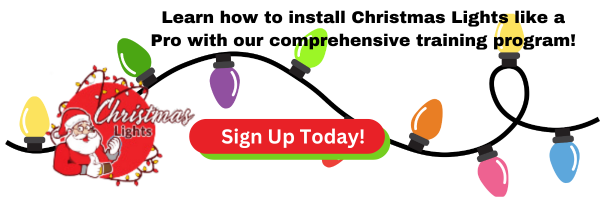
How to Optimize Your Close Rate
To reach that 10-20% sweet spot:
1. Gradual Price Increases
If your close rate exceeds 50%, systematically increase your prices until you reach the optimal range. This doesn't mean arbitrary price hikes—it means aligning your pricing with the premium value you provide.
2. Improve Your Sales Approach
When quoting higher prices, your sales approach becomes more important. Focus on:
- Understanding client needs through thoughtful questioning
- Educating prospects about the value differences between quality installation and budget options
- Creating visual proposals that showcase your premium design approach
- Emphasizing safety, reliability, and hassle-free service
3. Target Higher-Value Neighborhoods
Your marketing efforts should focus on neighborhoods and areas where homeowners have both the means and desire for premium holiday lighting. This strategic targeting naturally aligns your close rate with the right customer base.
Tracking and Improving These Metrics
Knowing these numbers is just the starting point—you need to actively track and work to improve them.
Regular Monitoring
Review your average ticket and close rate:
- Weekly during peak season
- Monthly year-round
- Quarterly for trend analysis
- Annually for strategic planning
Most CRM systems can generate these reports automatically. If yours doesn't, create a simple spreadsheet to track:
- Quote date
- Quote amount
- Whether it converted to a sale
- Final invoice amount
Setting Improvement Targets
Once you know your current metrics, set specific improvement goals:
- "Increase average ticket from $800 to $1,000 this season"
- "Adjust close rate from 70% to 40% while increasing average ticket by 50%"
These concrete targets give you something to work toward and measure your progress against.
Seasonal Analysis
Compare your metrics across different seasons and years. This historical data helps you:
- Identify which months have the highest potential for premium sales
- Recognize when you need to adjust pricing or marketing strategies
- Plan your resources more effectively for busier periods

The 80/20 Rule in Christmas Lights Installation
The Pareto Principle (80/20 rule) applies powerfully to Christmas lights installation:
- 20% of your customers generate 80% of your revenue
- 20% of your customers create 80% of your problems
- 20% of your marketing efforts produce 80% of your leads
By understanding this principle, you can focus your energy on the clients, services, and marketing channels that deliver the greatest return.
Following Up: The Difference Between Success and Failure
One final critical point: follow-up is essential to converting premium customers. The saying "If you don't follow up, you'll fold up" is absolutely true in this business.
Implement a systematic follow-up process:
- Send text messages to check decision status
- Make phone calls to answer any questions
- Provide additional information that addresses specific concerns
- Follow up with past customers to secure repeat business
One installer generated $18,000 in additional revenue simply by sending 50 text messages to past customers—a five-minute task that yielded significant returns.
Building a Sustainable Christmas Lights Business
The path to a profitable, sustainable Christmas lights installation business isn't through working harder—it's through working smarter by understanding and optimizing these two critical numbers.
When you increase your average ticket value while maintaining a strategic close rate, you create a business model that:
1. Maximizes your profit per hour worked
2. Reduces physical strain and burnout risk
3. Positions you as a premium service provider
4. Creates a sustainable growth trajectory
Christmas lights installation can be a highly profitable seasonal business that complements pressure washing or other home services. By focusing on these two numbers—average ticket and close rate—you'll build a business that not only survives but thrives for years to come.
Remember: Don't compete on price; compete on value. The customers worth having will recognize and pay for the difference.

What are the two most important numbers I should track in my Christmas lights business?
Answer: The two most critical numbers every Christmas lights installer should track are your average ticket value and your close rate. Your average ticket is the total revenue divided by the number of jobs completed, while your close rate is the percentage of quotes that convert to paying jobs. Together, these metrics provide powerful insights into your business's health and growth potential.
What should my average ticket be for Christmas lights installation?
Answer: For a profitable Christmas lights installation business, your average ticket should be at least $1,500 or higher. Many successful installers maintain average tickets of $2,000-$2,800 for residential projects. If your average ticket is below $1,500, you're likely leaving significant money on the table and working harder than necessary to achieve your revenue goals.
My close rate is 90% - isn't that a good thing?
Answer: While a high close rate might seem positive, a close rate of 90% typically indicates your prices are too low. For Christmas lights installation, the optimal close rate should be between 10-20%. This lower rate shows you're targeting the right customer segment (those who value quality over bargain pricing) and charging appropriately for the premium service you provide. Remember: you don't want or need every potential customer.
How can I increase my average ticket value?
Answer: You can increase your average ticket by:
- Bundling services (combining roofline lighting with wreaths, ground lighting, tree wrapping, etc.)
- Implementing tier pricing (good, better, best options)
- Charging appropriately for premium services (8-10 dollars per foot for lights)
- Adding high-value elements like custom wreaths ($400-500)
- Focusing your sales pitch on value rather than price
- Offering comprehensive packages rather than à la carte options
Won't raising my prices drive away customers?
Answer: Yes, raising prices will reduce your close rate—and that's actually the goal. By finding the right balance between price and close rate, you'll work with fewer, higher-quality customers who value your expertise. This allows you to do less work for the same or better revenue while reducing overhead costs, minimizing risk exposure, and creating more time for high-value business activities.
How often should I review my business metrics?
Answer: You should review your average ticket and close rate:
- Weekly during peak season
- Monthly year-round
- Quarterly for trend analysis
- Annually for strategic planning
Regular monitoring helps you identify trends, set improvement targets, and make data-driven decisions about pricing and marketing strategies.
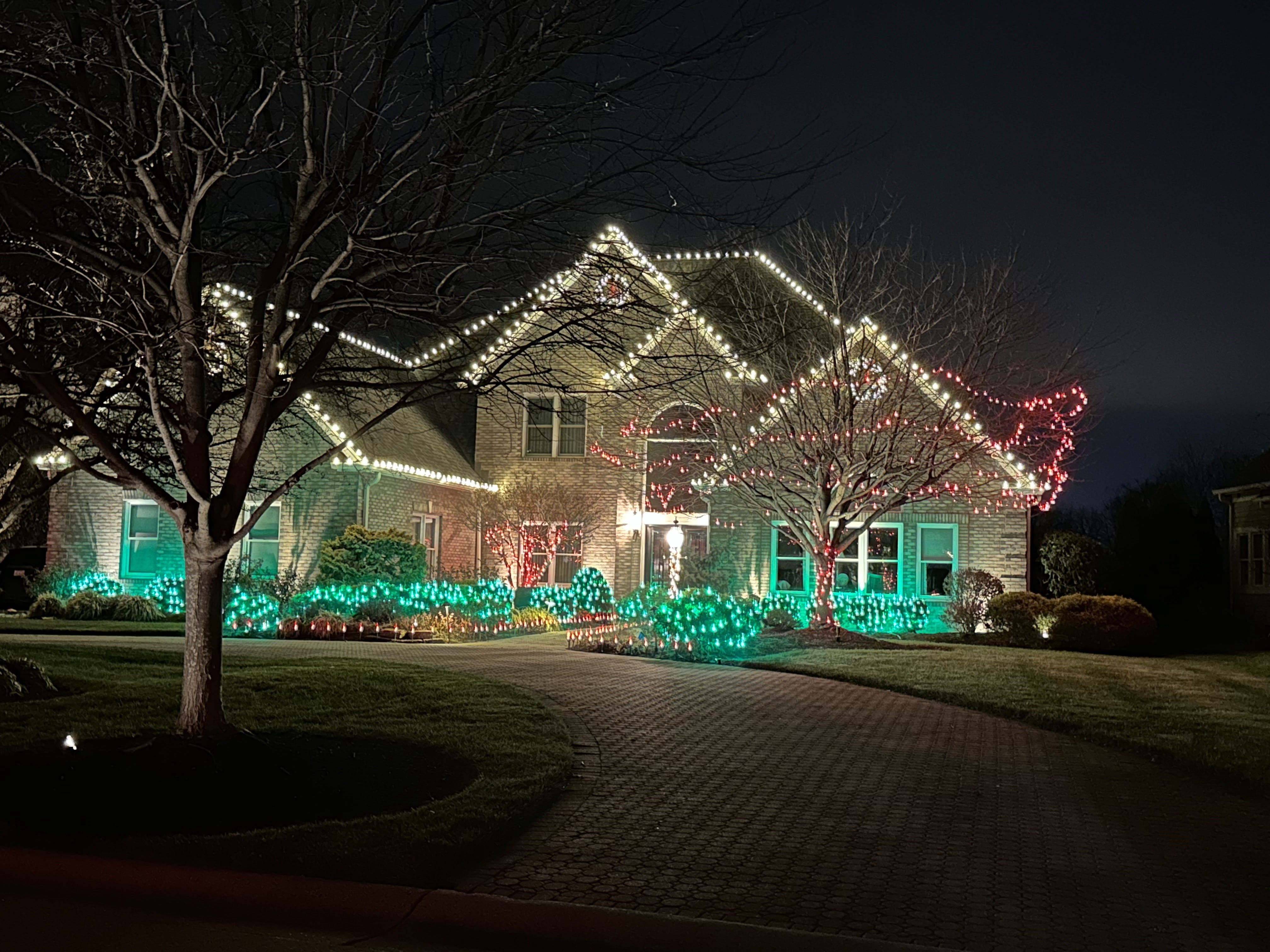
Is it worth doing small jobs for less than $1,000?
Answer: Generally, small jobs under $1,000 are not worth pursuing for professional Christmas lights installers. Each job carries setup costs, travel time, administrative work, and risk exposure regardless of size. By focusing on higher-value projects, you can maintain or increase revenue while significantly reducing your workload and operational costs. The goal is to maximize your profit per hour worked.
How does the 80/20 rule apply to my Christmas lights business?
Answer: The 80/20 rule (Pareto Principle) applies powerfully to Christmas lights installation:
- 20% of your customers generate 80% of your revenue
- 20% of your customers create 80% of your problems
- 20% of your marketing efforts produce 80% of your leads
By understanding this principle, you can focus your energy on the clients, services, and marketing channels that deliver the greatest return.
How important is follow-up in the sales process?
Answer: Follow-up is absolutely critical to converting premium customers. Without systematic follow-up, you're leaving significant money on the table. Implement a process that includes text messages, phone calls, and emails to check decision status and address specific concerns. Follow up with past customers to secure repeat business as well. One installer generated $18,000 in additional revenue simply by sending 50 text messages to past customers.
Can I really charge $8-10 per foot for Christmas lights in my area?
Answer: Yes, you absolutely can charge $8-10 per foot in virtually any market if you position yourself as a premium service provider. While some installers claim their market won't support these rates, others in the same geographical areas successfully charge premium prices. The difference lies in marketing strategy, target customer base, and the ability to communicate value rather than competing on price. Customers who value quality, convenience, and expertise will pay premium rates for exceptional service.
Copyright ©2024 All Right Reserved website designed by christmaslights.io
Terms of Service / Privacy Policy
Have questions or need assistance?
Contact us at (855)619-LITE


